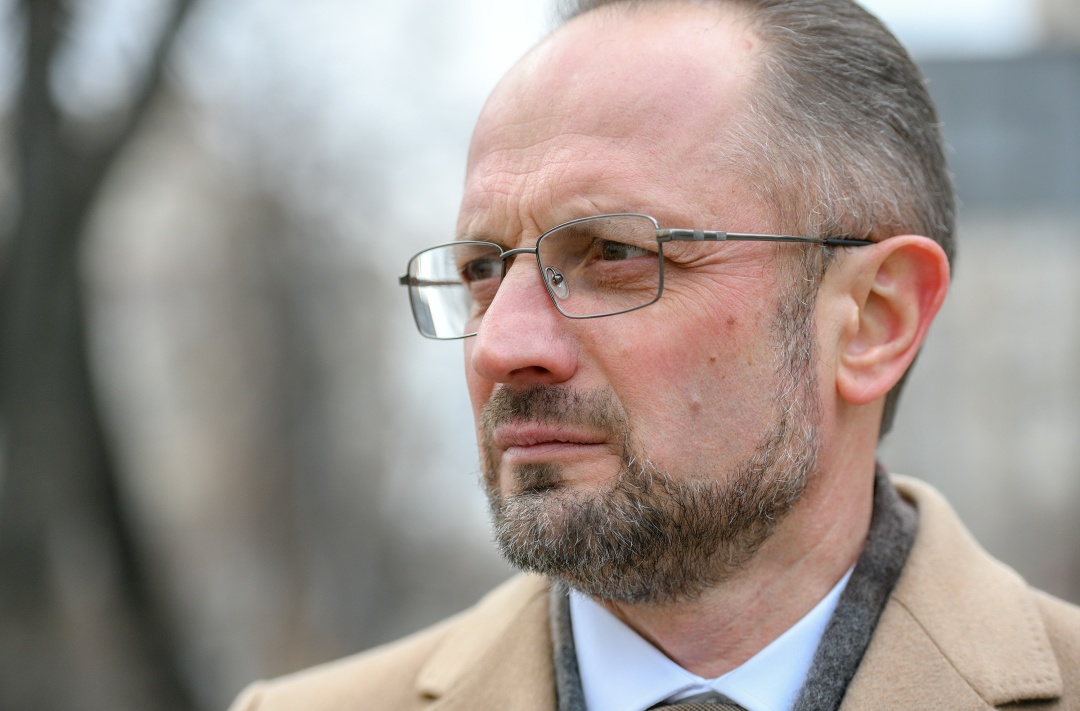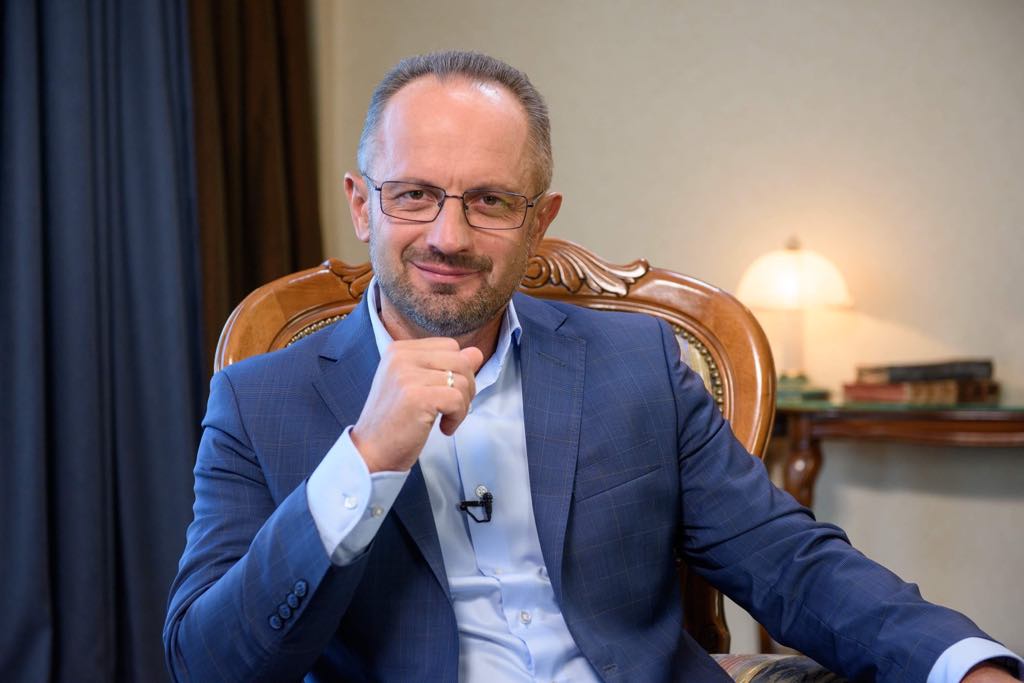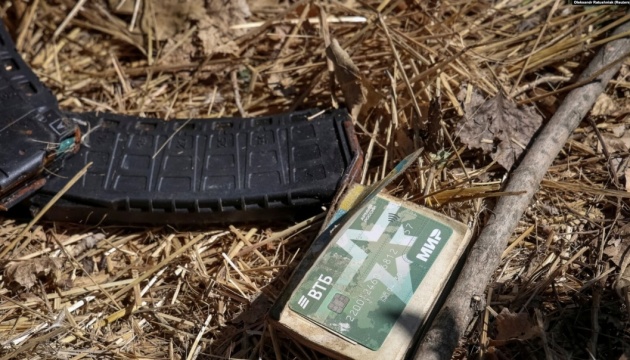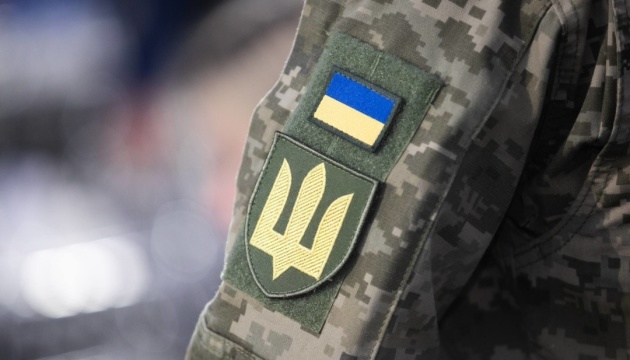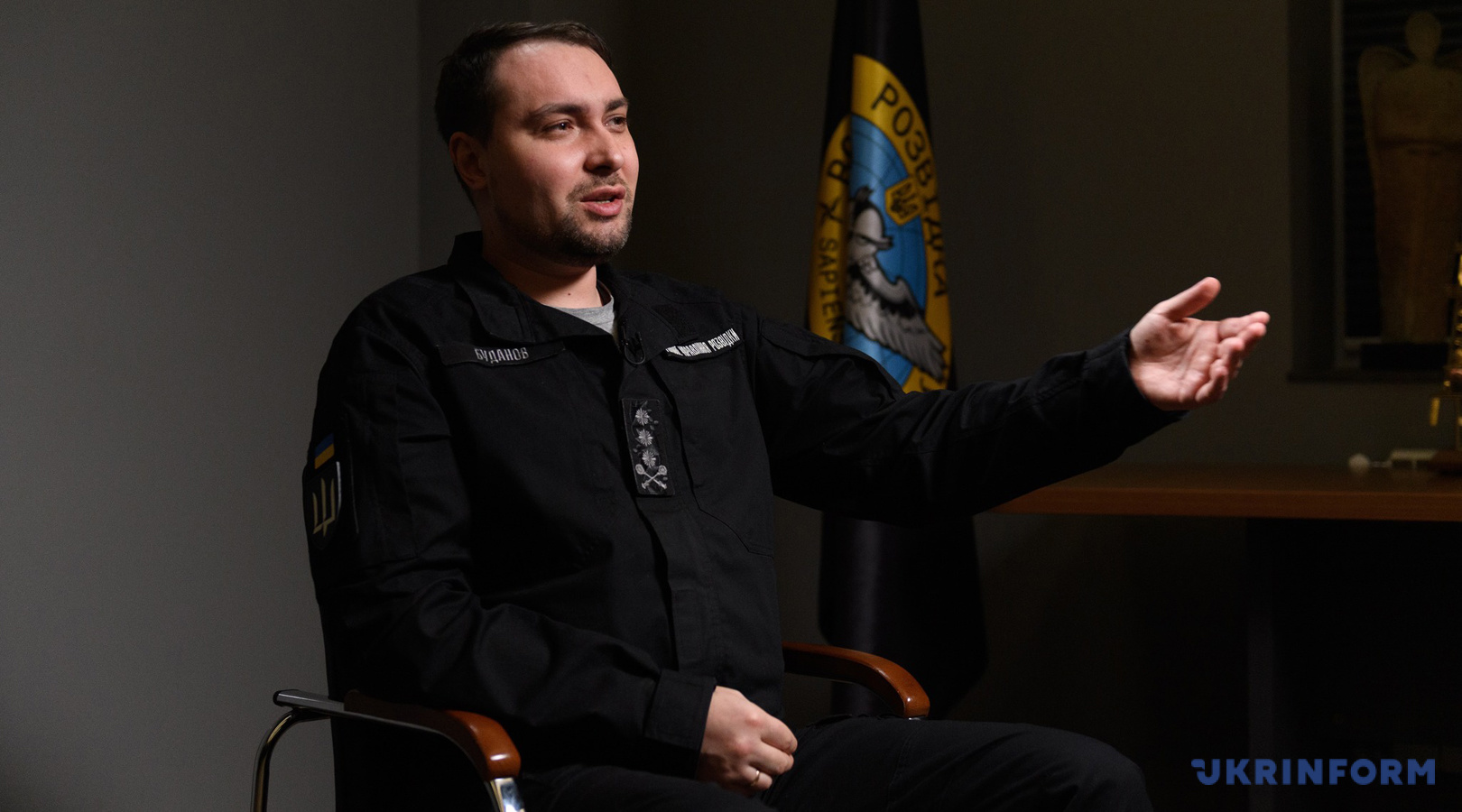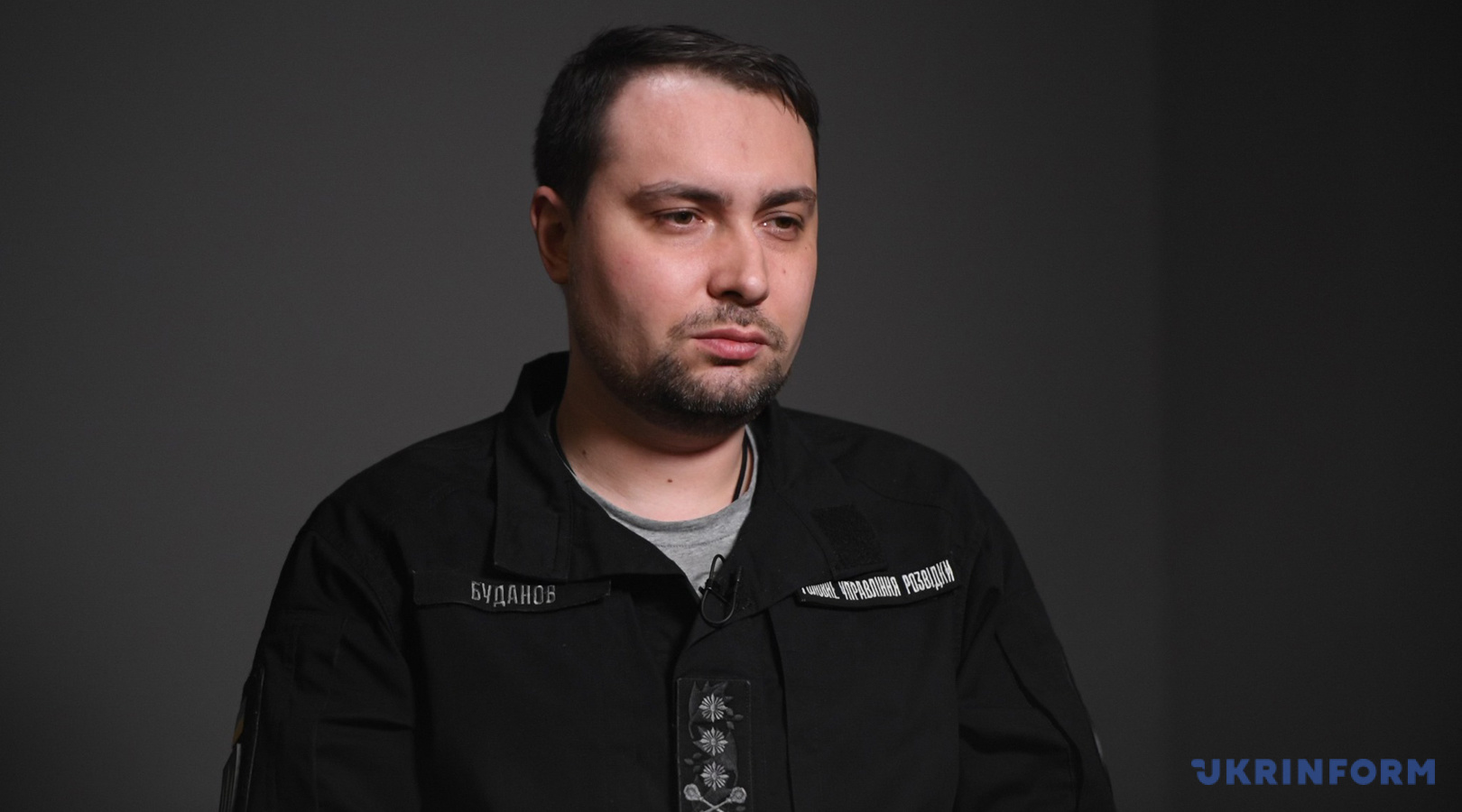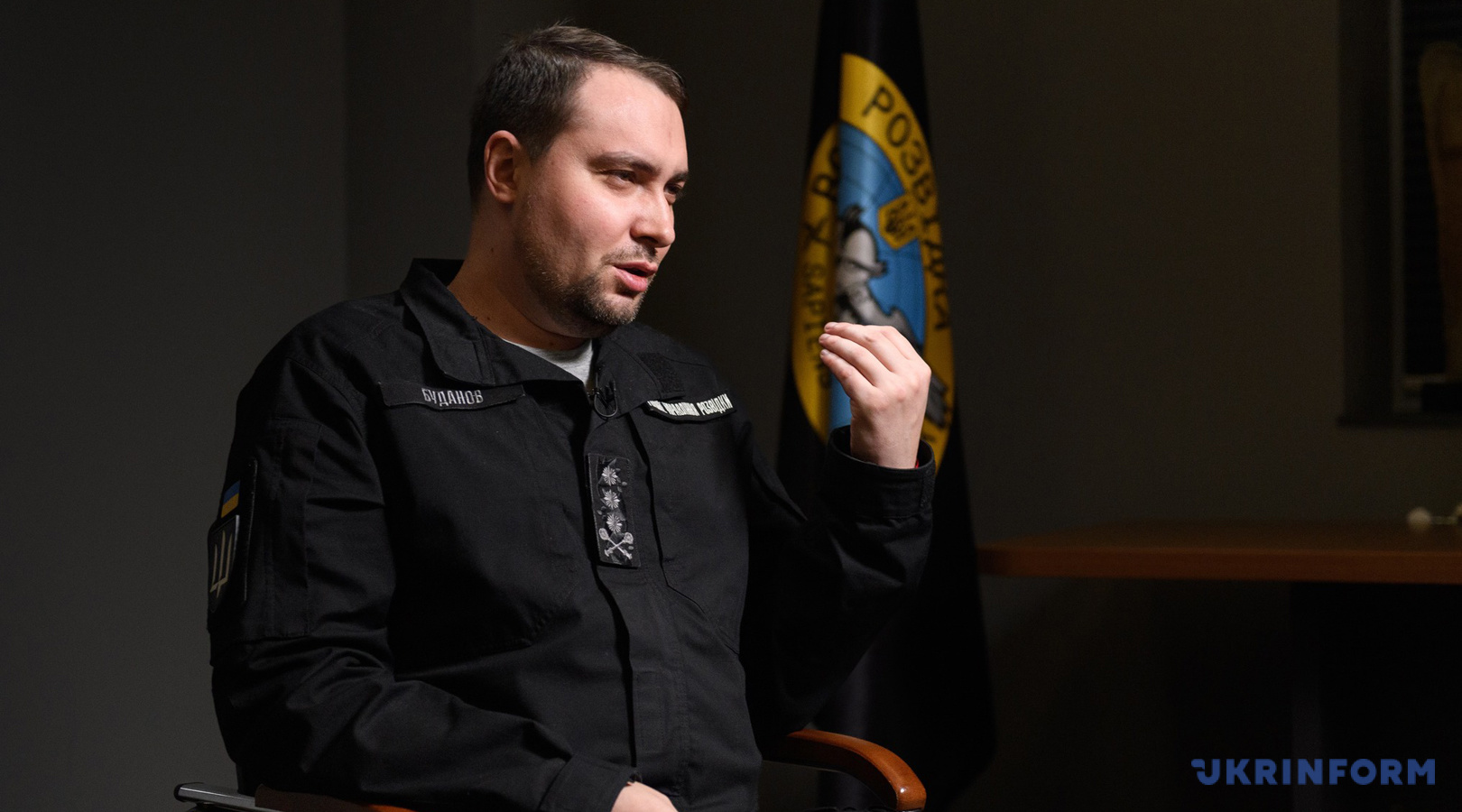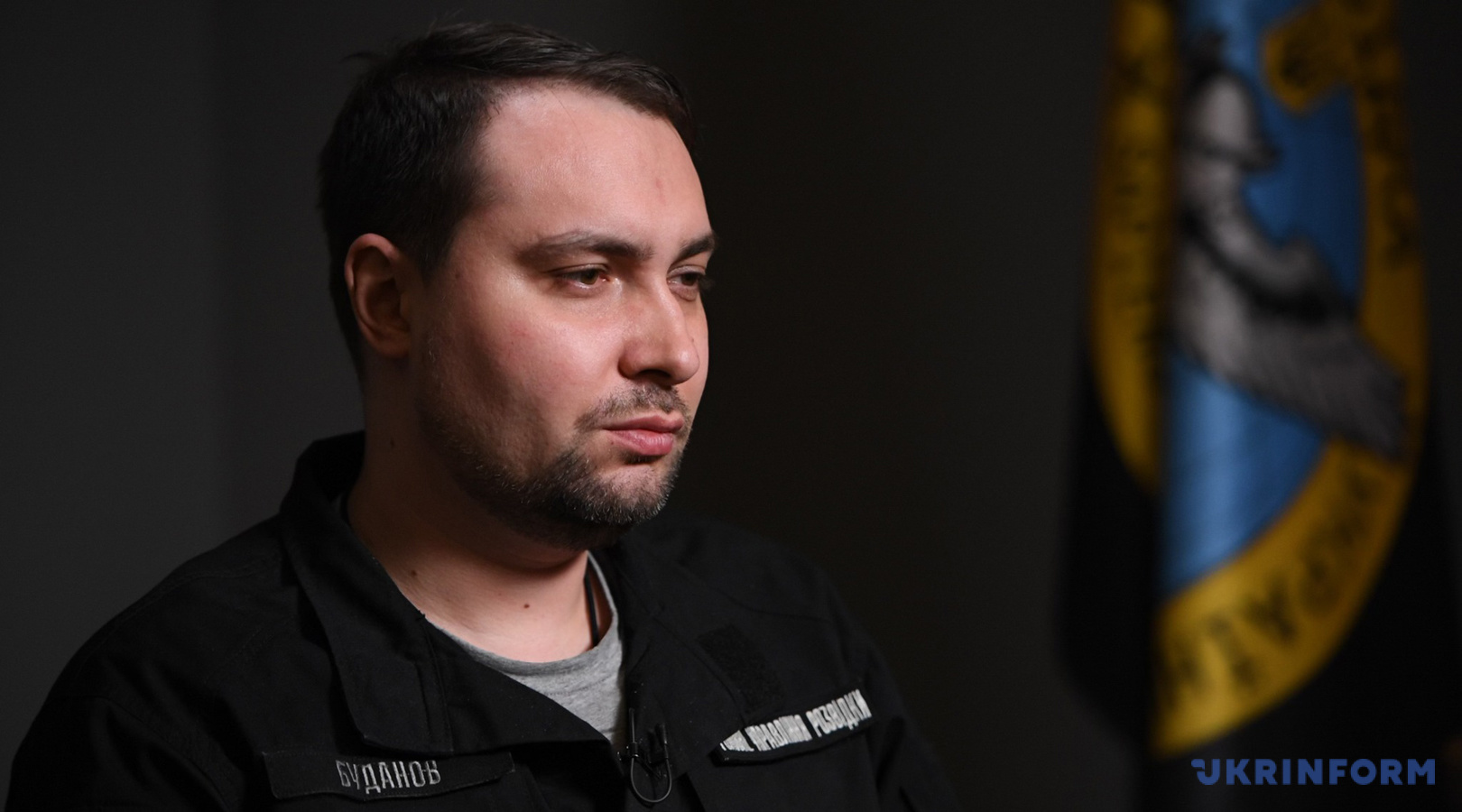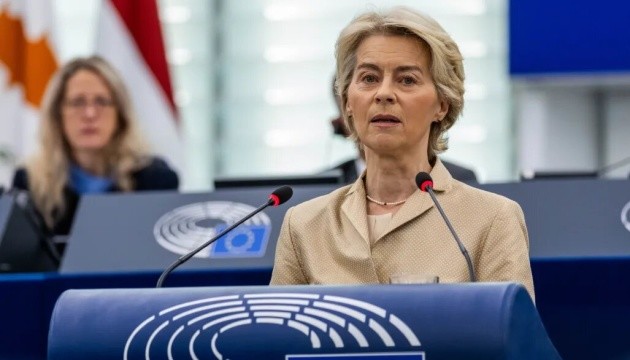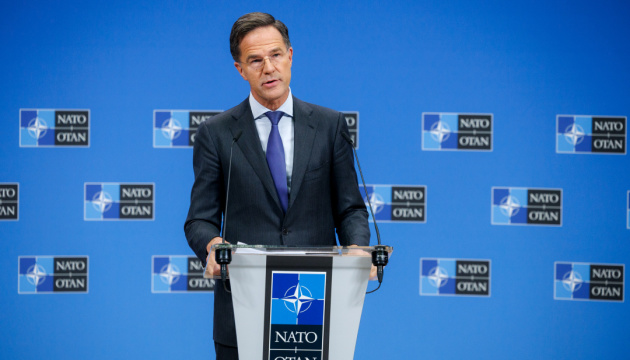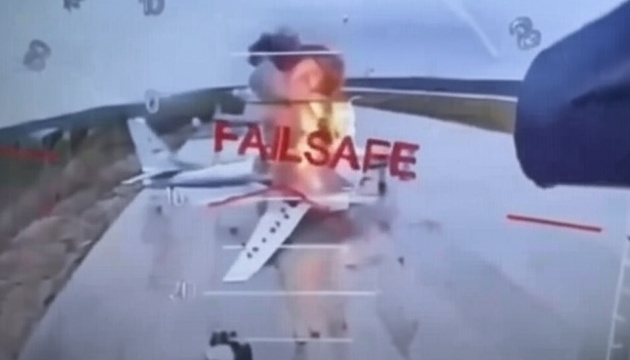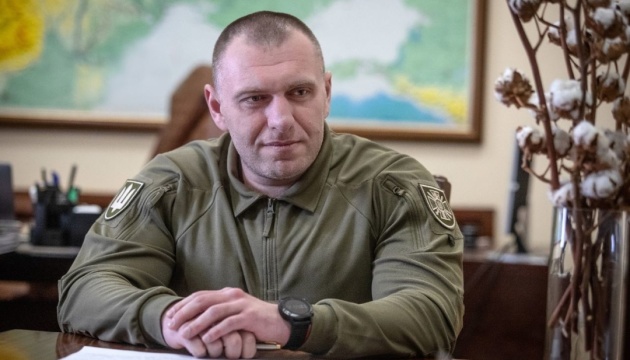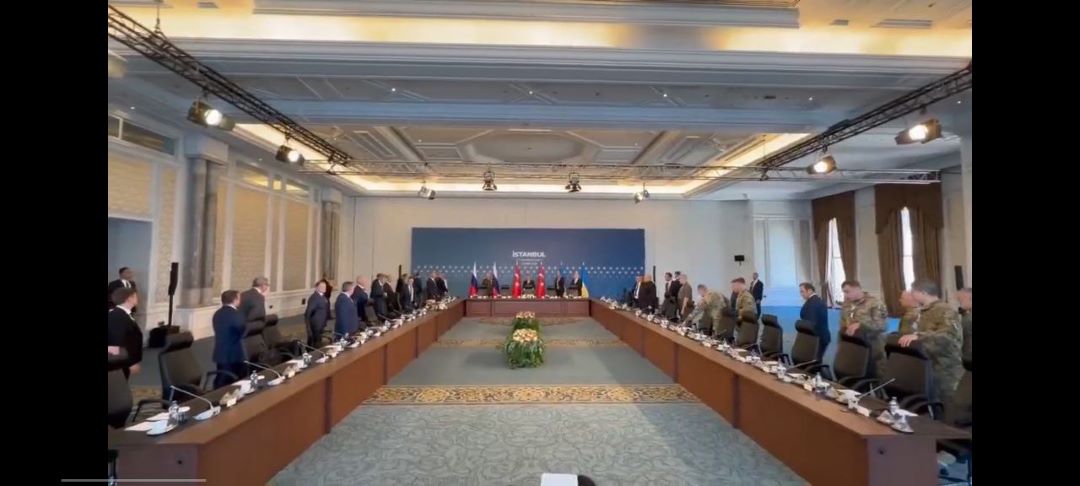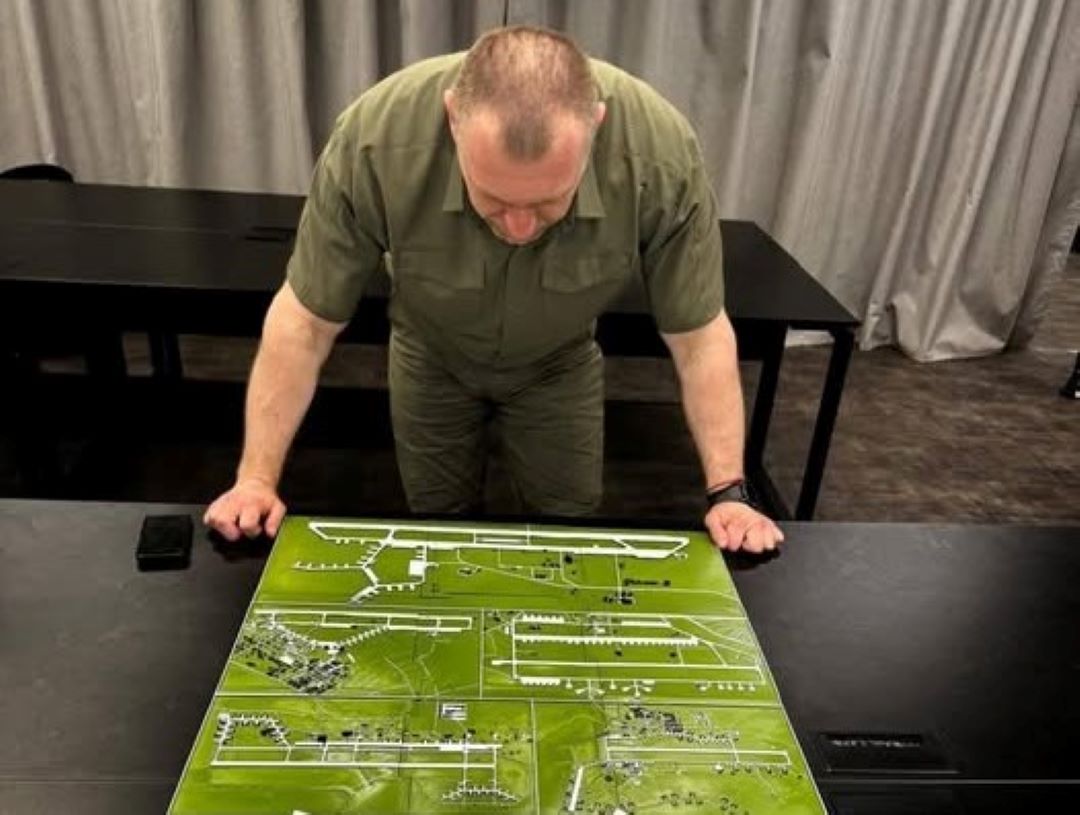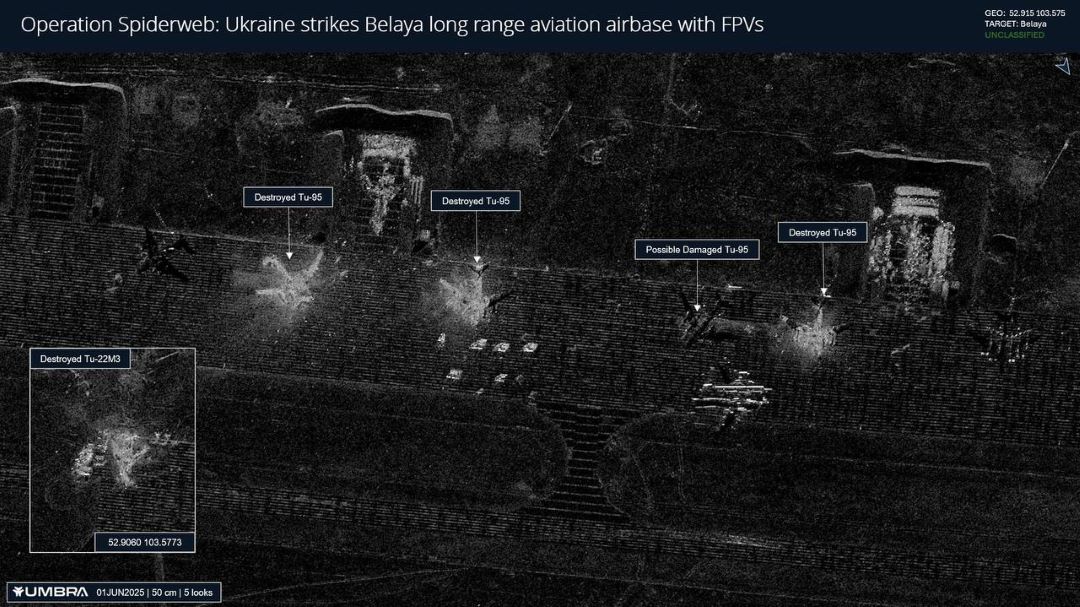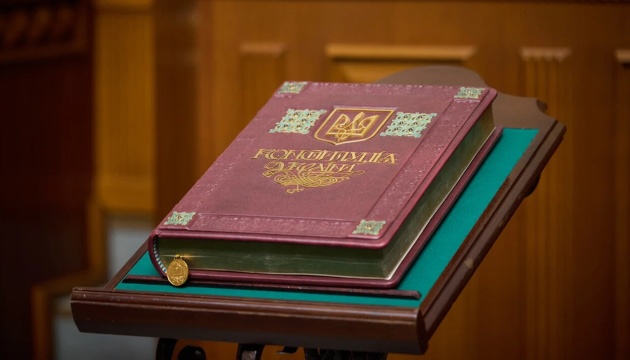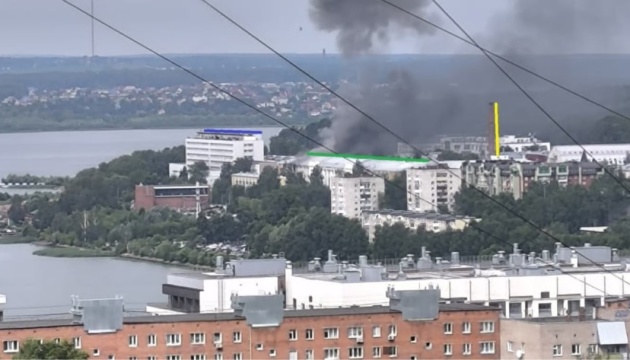Roman Bezsmertny, Ukrainian politician and diplomat
Trump’s first month in office: Much noise, but few real results
21.02.2025 09:10
There has been a whirlwind in the information space during the last two weeks which saw the Munich Security Conference, an urgent meeting of the EU and NATO leaders in Paris, a meeting of the American and Russian delegations in Saudi Arabia, and numerous statements by Donald Trump, whose second term in office began exactly a month ago today.
Ukrinform talked to politician and diplomat Roman Bezsmertny about this all, and more.
– February 20 marks a month since Trump began his second terms as president of the United States. How would you rate it, do you, too, get the impression that a whole year has passed?
– Everything about Trump is predictable: no surprises, but with a huge amount of information noise. The “elephant” is returning more slowly than one might expect, as the years are taking their toll. But even so, he has made a lot of noise. However, the efficiency of this all is about 0.25. That is, there is a lot of noise, but much less real deeds.
Has this month felt like a year? This feeling arises in those who are driven by flows of information rather than specific decisions. Trump generates a huge amount of news, but how effective are they? Some reports have it that only 18% of his executive orders have actually been put into effect. The rest have either been blocked as unconstitutional or simply thrown in the trash. Trade tariffs against Mexico, Canada, China? He introduced and immediately canceled them due to adverse consequences for the United States. His grand ideas like “Canada is the 51st state of the United States” or the purchase of Greenland, have remained at the level of words rather than deeds.
In the diplomatic field, there is also more noise than real decisions so far. End of the war in Ukraine? Zero. Agreements with Putin or Zelensky? Zero. Gathering in Riyadh? So far, these are not even negotiations, but consultations. J.D. Vance came to the Munich Security Conference, said a bunch of things there, insulted intelligent people, left behind more questions than answers. And what the result?
– However, in Europe, the statements Trump made during this time regarding Ukraine, the Russian Federation and the war were called “concessions before the negotiations even got started”…
– Here it is important to draw a distinction between Trump’s style and the real consequences of his actions. He promised to call Putin – he called. He promised to act – he acts. But the question again, is how effective his actions are.
As for his alleged “concessions” – in fact, his advisers wanted to act even tougher, but even now it is becoming clear that their ideas are not working.
It is also worth understanding who really dominates the relationship between Trump and Putin. Some believe that Putin is afraid of Trump, but this is not so – it is Trump who is afraid of Putin, who speaks to him in the language of the KGB-FSB. Trump is flattering. And flattering means that he is afraid. How he will get out of it is a question.
– How do you view Trump’s negotiating strategy?
– His principle is to raise the bar and wait for the first one to give in. He sent Zelensky a demand for 500 billion, and when he received a diplomatic refusal, he immediately backed down. Or recall when he was asked if Ukraine would be at the negotiating table. He grumbled something, and when it was announced from Kyiv that Ukraine would not recognize any results of negotiations that would take place without Ukraine, it was the same. Trump announced the next day that Ukraine would have a permanent place at the negotiating table.
If you look at all his “microduels,” he mostly fails them. For example, he wanted to buy Greenland, but Mette Frederiksen told him that Greenland is not listed on the stock exchange.
Trump follows a pattern as follows: he bursts into a room, smashes the dishes, sees that there is no effect, and then goes on - bursts into another room to smash an even more expensive service. His people, like J.D. Vance, go to attend big events, say something loud there, and Europeans react to this with a sarcastic smile, like experienced teachers to a noisy student. First they listen, then laugh, and finally they just go about their business.
– How did Trump’s team look like at the negotiations in Riyadh?
– This is a disaster. Like I said, in Riyadh, there were no negotiations, but consultations, but who conducted them? Marco Rubio has no experience in diplomacy. Mike Waltz has zero experience in negotiations. Witkoff has worked in the Middle East and has no idea what Russia is. And facing them are Lavrov and Ushakov, experienced diplomats from the Gromyko school (the long-time USSR Foreign Minister, ed.). It’s like first-year students playing chess against grandmasters. The Munich Security Conference is a telling moment. The Americans came with one view and left with a completely different one. Hegseth, Keith Kellogg – even they realized that their strategy wasn’t working. There’s nothing to say about J.D. Vance at all – his speech generated more surprise than support.
So, what can we say about Trump’s first month in office? To sum up, his style is maximum noise and minimal results.
– Let me ask you another question about J.D. Vance: can his speech be described as a “wake-up call for Europe”?
– “A wake-up call for Europe”? I don’t think so. Europe woke up on February 24, 2022. Since then, it has been acting according to the plan endorsed at the 2022 Versailles Summit. António Costa, President of the European Council, is absolutely right saying that, after 24.02.22, Europe became different - the reaction to Russian aggression against Ukraine altered the political landscape altogether. Important adjustments were also made on February 3, 2025, during an informal meeting of EU leaders in Brussels, dedicated exclusively to issues of defense and strategic strengthening of European security. It was about, in particular, increasing defense spending.
– So it was not Vance’s speech that boosted these changes?
– Vance’s speech outlined the US posture. But at least some people in the hall knew that these processes had all got underway, that the decision had been made and was being implemented. As Ursula von der Leyen and António Costa point out, the question now is not how much needs to be done, but how to do it faster and better.
What am I leading to? That strategies have changed: Europe is ready and willing to ramp up support and is doing so.
The Europeans have furthermore seen an important thing: everything that is manufactured in Europe can also be manufactured in Ukraine, and cheaper at that. Many aspects of cooperation are currently being reviewed, first of all with respect to the defense [industrial] sector. If it can be done cheaper and faster, why spend extra money? This is a reasonable approach, and it will expand further.
– So Europe will not remain just an observer?
– The process of making Europe stronger is already irreversible. Take, for example, Poland, it has become a good example for others to emulate. Defense industrial capacity strengthening continues in Great Britain, Germany, and France among other countries.
– And what about arms supplies to Ukraine?
– Here, much depends on the United States. If America decided to reduce its involvement, Europe will compensate. Another thing is that there is a product range in relation to which the Americans say: let Europe buy them from us, then send them to Ukraine. Europe will therefore need to work out how to do this and how much it will cost.
– Concluding the topic of Munich… What’s your assessment of the outcomes of this gathering, specifically for Ukraine?
– Basically, the outcomes are favorable. Very important topics were highlighted that had not been brought to the surface previously. One such is American involvement, for example. There is more clarity on that issue as of today. Second is Europe. You know, no matter what happens there, Europe takes off and gains speed. Moreover, they understand perfectly well that Europe and the USA are already economic competitors. This has already been clearly comprehended by Europe, and this is the basis on which they will act.
– Trump, like you said above, is inflating his demands to the unrealistic level. That is, his diplomacy works on the principle that first you make inflated demands, then you get what you really need. What is Trump's minimum plan? What is he counting on?
– His primary goal is to achieve the cessation of hostilities, that is, a ceasefire. Not peace actually, but a break in hostilities. Then he wants to shift all responsibility to Europe.
– … a ceasefire?
– Yes, just a ceasefire. I was talked about this for three years in Minsk.
-- Former Ukrainian Foreign Minister Dmytro Kuleba said in a BBC interview the other day that Ukraine's strategy should be to "draw Trump into a long game" and not give in to the impetuous pressure the US president is banking on. But how to draw Trump into this "long game"?
– Kuleba is absolutely right. This is what I have been saying since 2015. The Americans should sit at the negotiating table, rather than hide in the bushes. This is the first.
The second. We have just talked about Trump's plan (to achieve a cease-fire, then shift everything on Europe, - ed.), but I'll tell you what will happen. He won't get out of here. He's already in this process. Note that a few days ago he wanted to see himself as a party to a bilateral agreement between America and Russia. But later on, someone explained to him that he is a mediator.
- And how did that change the situation?
- Now his rhetoric has changed. At first, he didn't see President Zelensky at the negotiating table, and now he says the opposite. And so, at the talks in Riyadh, there was already talk of bilateral relations and the preparation of a meeting between Russia and Ukraine through American mediation.
– So, the US is actually already playing the role of a mediator?
– Exactly so. There is no longer the “Normandy Format”, where Russia sought to set itself up as a mediator and talk about “two Ukrainian sides”. Do you remember how Moscow interpreted this? What Kyiv has been talking about since 2014 has happened: the US should become a mediator, a party to the process, and it will be we who will be negotiating with Russia.
– But why it is only now that this idea is being translated into reality?
– Because America initially refused this role. They transferred responsibility to Europe, which was dependent on Russian gas and oil. Russia was availing of this. And the Americans believed that they would stand on the sidelines. But no way. Time had passed, and they are forced to take on the role of a mediator. And it no longer matters who is sitting in the White House – Biden, Obama, or Trump.
From my point of view, this is the situation that is conducive to the development of a new world order.
– What do you mean?
– America dreams of dividing the world, and Trump sits as a mediator between Zelensky and Putin. What a scope and range! Just imagine: he wants to rule the planets, and here he is told: sit here and listen to what Zelensky says, what Putin says. The US should have fulfilled the mediator’s role back in 2014. But they cut it short for themselves. So now, nearly 12 years into the war, they are entering this process as mediators, when the issue of world order is already high on the agenda. And how else would they do this? In the UN Security Council – there are three (the USA, Great Britain and France) against two (China and the Russian Federation). Nothing works. A new Yalta? There are two (the USA and Great Britain) against one (the Russian Federation). It won’t work either. Okay, let’s go to Riyadh then. Trump is explained that Europe must be present there, but Trump wants to be the only one. And this “be the only one” will turn into Americans sitting around watching Ukraine and Russia negotiating... This is a trap.
If the form does not match the content, then what can this end up in? At best, it will simply be a dead end. At worst, it will increase tension worldwide. Our tragedy is that we are the battlefield in the battle for this new order. Because no new world order has yet been established as a result of a global conflict. So far, this conflict is limited to two wars - the Russian-Ukrainian and the Iranian-Israeli. And proceeding from this understanding, one should have looked more broadly, if there were enough common sense. And based on an understanding of the confrontation between the "axis of evil" (Russia, China, Iran, Belarus, North Korea) and the "coalition of freedom and democracy" (the European Union, Ukraine, Great Britain, the USA), this should have kicked off the process of building up a new world order, or restructuring and transforming the United Nations... with a serious intention to achieve something. And what Trump is doing today… He only creates discomfort.
– Keith Kellogg, Trump’s special envoy, has arrived in Ukraine. He will stay here for three days. He is supposed to go to the frontline. What are your expectations from this visit?
– My wife drew attention to the age comparison: Zelensky is 47 years old, Kellogg is 81. This raises a logical question: “How will this old man go to the frontline, considering his age?” But even so, Kellogg is one of the few figures in Trump’s entourage who really understand what is happening. His visit to Ukraine in 2022, his analytical notes – this all suggests that he has some ground under his feet.
I have read his notes and I can say: he came to Kyiv with one standpoint, and will leave with a different one. But no one will learn about it. He is an experienced military man, and although his strategic thinking was formed during the Afghan war, it is this experience that can help him quickly assess the situation. I used to doubt that he would understand this, but four months ago I changed my mind. Russia is waging a war using the methods of the 70s - trench warfare, attrition. Kellogg will see this. He will also see how Ukraine has developed UAV technologies, and which components need to be improved and matured.
When back in Washington, he will undoubtedly write a substantial report. Its official recognition would mean a complete revision of the American strategy, and most importantly, an understanding that Russia is not as strong as they are trying to portray it. Let me remind you: Trump is afraid of Putin, not vice versa. And if this fear is broken, then the entire narrative built up over the past years will have to be sent to the trash.
- Don't you think that the Rashists had a calculation when they insisted they would not talk to Kellogg?
- Yes. This being the case, the Muscovites will be saying that he is a very long distance from Trump. But this is not true. In fact, they are afraid of his involvement in this process.
– Keir Starmer, the Prime Minister of Great Britain, will travel to the United States next week to meet Trump. At the Paris Summit, he stated that London is ready to send its troops to Ukraine, his country has taken over [Washington’s] leadership role at Ramstein. Is he now being delegated to speak on behalf of a united Europe?
– Ramstein was “born” by Ben Wallace, former head of the British Ministry of Defense, it was his idea, which he and Boris Johnson implemented. And they handed it over to the United States. That is, this “child” has been British from the very beginning. This is the first.
The second is that, like Boris Johnson correctly writes, the British army is the second army in NATO. And therefore, no one except the British can play this role of the “[security] guarantor”.
The third, and very important in this situation is that Great Britain is no longer a member of the European Union. It is distanced from both Brussels and Washington. But there is another thing here – the One Hundred Year [Partnership] Agreement [between the UK and Ukraine], the role of Great Britain in the system of security guarantees, the configuration of the new European security architecture, where Brussels represents continental Europe, and the key components to this security architecture are located on both sides – in Kyiv and London. This thing is not coincidental, it has been seen for a long time. And at the same time, neither of them is tied to the EU or NATO. Yes, Britain is in NATO, and Ukraine will be in the EU, but this is a partial teamwork.
– So Starmer’s visit to the USA to meet Trump is by no means accidental?
– Absolutely not accidental. I am convinced that the British will be the leaders of the new European security architecture, and the topic of Ukraine’s security guarantees will be one of the components to this architecture.
– Let’s get back to the negotiations… Putin and Trump have announced the approaching of bilateral meeting…
– We must appreciate that Ukraine will be only one of the topics for the forthcoming bilateral meeting between Trump and Putin, and it will not dominate the agenda. What decisions can be made? An agreement to negotiate? Well, think about it, assume they agreed to negotiate. Or, speaking hypothetically, Trump says: we are giving away the territory to you, and Putin asks: will Zelensky sign it? No. And will there be elections held in Ukraine to put someone in power to sign it? No. Well, so what are we talking about here then?
– And what is Russia’s current strategy? What is the enemy’s maximum plan and minimum plan?
– They will “play Trump”, will drag out the process. And in fact, there is only one solution, that is, to implement the opposite of the “Minsk process”, meaning a sharp strengthening of Ukraine, the transfer of the strategic initiative to Ukraine, the turning on sanctions to maximum extent and then – finalization. It, this finalization, will have two options to end up with: either Russia's surrender, or "locking" it where it is sitting now.
- Statements are heard from time to time, that Russia is preparing for war with NATO. How real is this threat? (Trump has already stated that he does not believe in it). Does Russia have the necessary resources for this, given the condition of its armed forces and economy?
- If what I‘ve just mentioned does not occur now, then the respite that will be allowed to Russia will result in the fact that Europe will come under attack. Trump has a chance to see the deplorable consequences of his initiatives. While still president.
- Are there any prerequisites for negotiations between Kyiv and Moscow in the coming months? What can these negotiations be about given the current situation on the battlefield? What decisive arguments can Ukraine offer, and are they convincing enough to conduct a dialogue from a position of strength?
- There are no such prerequisites at the moment. They can arise only in one case, this is a reassessment of Moscow and its global posture. And this will only be possible if and when the initiative passes to Ukraine. Then Trump will clearly see the true meaning of his “peace through strength” doctrine, or else he will turn into a mediator, into Monsieur Morel.
– So what is the war heading towards – a freezing, an end, continuation at the same intensity, a return into a smoldering conflict, as it was the case during the [Anti-Terrorist Operation] ATO?[/b]
– I think everything will remain as it is now. I don’t see any other option yet.
– Will the US continue to provide military assistance to Ukraine? What could be the conditions for further support?
– How high the bar has been pushed by Trump? First, he wants to avoid a new Afghanistan. There, first of all, there was no one to help. But Ukraine has those to help it! So the question is: why aren’t you helping? That’s the fork that they will never be able to solve.
– Recently, the Republicans introduced a new lend-lease bill for Ukraine to the Congress floor. How effective is it this time around?
– In today's America, a Lend-Lease is a dream. Lend-Lease can be implemented in Europe. There still remains some understanding of what economic development planning is. In the US, it is uncontrolled. They need to take unprecedented measures to make this uncontrolled process take the Lend-Lease track. What are the unprecedented preferences with this tariff policy that Trump has announced?
– So there is no solution?
– The solution is in one place only. And this is the Russian-Ukrainian frontline – maximum amount of assistance to Ukraine. Note that I do not pronounce the word “victory”. This is more about a transfer of initiative – tactical and strategic. And then there is a solution -- the “situation on the ground”, as the Fuhrer in Moscow says, on the one hand, and sanctions and losses on the other.
Another option is to build up a new security architecture where America is visible. To what extent? One has to be that “genius” as to think that the 100,000-strong armed force they have in Europe could not be replaced with Ukraine’s army. Recall how Ben Wallace, when in Vilnius, was offended that the President of Ukraine did not thank Europe, the world, Great Britain for their help. And now Zelensky, where and whenever he appears, says “thank you” for a reason and without a reason. But I keep waiting for at least one of them to thank Ukraine. They don't understand that the situation has changed over the past three years. And it's fundamentally about who plays what role. Yes, they do help, but who is covering Europe today, who is fighting so that Donald Trump could "fantasize" about this every day? Who is doing it? It's determined by the Ukrainian soldier at the frontline. It is therefore necessary, both in Europe and the United States, to bring to their senses those who think that they will be able to sit out... But it won't be like that.
Interviewed by Myroslav Liskovych, Kyiv
Re: What is the real truth behind the Ukraine/Russia war? ሰዉየው ምን እያለ ነው?
Re: What is the real truth behind the Ukraine/Russia war? ሰዉየው ምን እያለ ነው?
እኛ ኤርትራዉያን የመሃልና የመስመር ዳኞች፡ ለጀግናው የዩክሬን ህዝብ ከነጀግናው መሪያቸዉ ትልቅ ክብር እንሰጣቸዋለን! 
ጀግናው ዘለንስኪ ባያነሳ ጋሻ፡
በቦረቀ ነበረ አውሮፓ ላይ ራሻ።
ወራሪ ከሰሜን ይምጣ ከደቡብ ከምስራቅ ይምጣ ከምዕራብ ወራሪ ነው፡ በህዝብ ትግልም ይሸነፋል![ አራት ሚሊየን ነጥቦች]
“ክሬሚያ ሆይ ብረሳሽ ቀኜ ትርሳኝ!” እያለ ነው የኣውሮፓው ሻዕብያ፡ ዘለንስኪ ጀግናው!
ሲጠቃለል
መለስ = ፑቲን = የማሌ (የማርክስና የሌኒን ግርፍ) ልዑላዊ ሃገሮችን የወረሩ ወፈፌ መሪዎች
የታላቋ ትግራይ ህልም = የታላቋ ሩስያ ህልም = የታላቋ ጦቢያ ህልም
ደደቢት ብቻ ኣይደለም ደደብ፤ ሩስያም (ክሬምሊንም) ጭምር ደደብ ነው!
ዘለንስኪ ጀግና ነው!
ድል ለሰፊው የዩክሬን ህዝብ!
ጀግናው ዘለንስኪ ባያነሳ ጋሻ፡
በቦረቀ ነበረ አውሮፓ ላይ ራሻ።
ወራሪ ከሰሜን ይምጣ ከደቡብ ከምስራቅ ይምጣ ከምዕራብ ወራሪ ነው፡ በህዝብ ትግልም ይሸነፋል![ አራት ሚሊየን ነጥቦች]
“ክሬሚያ ሆይ ብረሳሽ ቀኜ ትርሳኝ!” እያለ ነው የኣውሮፓው ሻዕብያ፡ ዘለንስኪ ጀግናው!
Ukrainian SOF eliminate Russian platoon in Donetsk industrial complex
26.02.2025 08:30
Operators from the 3rd Regiment of Ukraine’s Special Operations Forces (SOF) successfully eliminated nearly an entire Russian platoon during a raid on an industrial complex in Donetsk region.
The SOF Command reported this on Facebook, seen by Ukrinform.
"Only one enemy soldier managed to survive – the operators forced him to surrender. He provided valuable information about enemy troop concentrations and ammunition depots, which were destroyed the same day," the statement reads.
When the Russian infantry seized the industrial complex, the command of one of the units of the 3rd Special Operations Regiment planned and sent subgroups to carry out special operations both at the site and around the perimeter of the industrial zone.
The drone operators were the first to act. Using drops and FPV strikes, the SOF fighters entered the industrial zone in armored Humvees and cleared all the buildings.
Read also: Russia’s war casualty toll in Ukraine up by 1,170 over past day
https://www.ukrinform.net/rubric-ato/39 ... t-day.html
As reported by Ukrinform earlier, the Ukrainian Special Operations Forces also cleared a forest belt in Donetsk region that the Russian forces had used to control access to an occupied industrial site.
Ukrainian paratroopers push Russians out of Kotlyne near Pokrovsk
26.02.2025 11:46
Ukrainian paratroopers have taken control of the village of Kotlyne in the Pokrovsk sector.
This was announced by the Air Assault Forces of the Armed Forces of Ukraine on Telegram, Ukrinform reports.
During the assault operations, paratroopers from the 25th Sicheslav separate airborne brigade of the Air Assault Forces of the Armed Forces of Ukraine recaptured Kotlyne.
It is noted that the seizure of this settlement by Russian invaders would allow them to reach the Pokrovsk-Dnipro road. Therefore, the enemy deployed significant forces in an attempt to capture it.
Sicheslav paratroopers and related units did not allow the Russians to gain a foothold in Kotlyne and pushed the invaders out of the area.
The Khortytsia Operational and Strategic Group of Forces added on Telegram that the joint operations resulted in the destruction of one enemy APC and 12 vehicles.
In addition, 275 Russian soldiers were killed and another 203 invaders were neutralized.
As reported by Ukrinform, the Special Operations Forces of the Armed Forces of Ukraine destroyed about a platoon of Russian military during a raid on an industrial complex in the Donetsk sector.
ሲጠቃለል
መለስ = ፑቲን = የማሌ (የማርክስና የሌኒን ግርፍ) ልዑላዊ ሃገሮችን የወረሩ ወፈፌ መሪዎች
የታላቋ ትግራይ ህልም = የታላቋ ሩስያ ህልም = የታላቋ ጦቢያ ህልም
ደደቢት ብቻ ኣይደለም ደደብ፤ ሩስያም (ክሬምሊንም) ጭምር ደደብ ነው!
ዘለንስኪ ጀግና ነው!
ድል ለሰፊው የዩክሬን ህዝብ!
Re: What is the real truth behind the Ukraine/Russia war? ሰዉየው ምን እያለ ነው?
Kyrylo Budanov, Head of Ukraine's defense intelligence, Lieutenant General
It’s realistic to quickly achieve a ceasefire, but not peace
27.02.2025 10:00
The interview was recorded on February 24, the third anniversary of Russia's full-scale invasion.
Kyrylo Budanov, 39, took helm of the Main Intelligence Directorate of the Ministry of Defense of Ukraine, abbreviated as HUR, in 2020, after serving in an elite unit, where he would take on brazen missions behind enemy lines. Several times, he was wounded in action.
In November 2021, in an interview with Military Times, he outlined in detail Russia's plans to invade Ukraine in January or February 2022.
Budanov is unprecedentedly open for a top intelligence official, regularly offering comments and interviews to journalists. Not at all typical for senior intelligence operatives, such publicity made Mr Budanov widely recognizable and, perhaps, played a significant role in him being among the most publicly trusted figures in Ukraine for the past few years.
Which of the recent HUR missions does he see as most successful?
Why didn’t the Russians “seize Kyiv in three days”? What military, economic, and human resources does the enemy possess at the moment? You can read and watch Kyrylo Budanov shedding light on these and other issues in his interview with Ukrinform.
- Sir, three years ago, the Kremlin threatened to take Kyiv in three days but Ukraine has been heroically fighting the overwhelming enemy force all this time as our Defense Forces and the nation as a whole have put up exemplary resistance. How do you assess the current condition of Russia’s forces and their country in general? What can they do and what do they seek to achieve?
- First, Russia’s goals remain unchanged, they have not abandoned them and they’ve been vocal about them. Their supreme leader claims that the goals of their special military operation must be achieved. You’re right, their “Kyiv in three days” turned into the third anniversary of the full-scale invasion. So, obviously, as people say, “something went wrong.” How would I assess their current condition? Their professional army was wiped out sometime before 2023, and since then Russia’s been deploying mobilized personnel. Although formally they are all contracted soldiers, the approach is the same. They recruit someone, and in two weeks max they are already at the frontlines. They bet purely on numbers.
- The goals are the same, but how do they seek to achieve them if, even with their professional army at the time, they failed to seal the minimum result they’d expected. Also, they haven’t occupied Donbas in its entirety. What are their military and political leaders counting on?
- Just look at the war map we saw was on February 21, 2022, and the one we see today. To say that they haven’t achieved anything would not be true. They are advancing, but this is absolutely not the pace they were counting on. Indeed, we managed to hold them back in most areas, and in certain areas they permanently have gains. So they – quite correctly – understand that this war is a disaster for them, as it is for us, too, but they do have capabilities to move forward.
- And for how long will those capabilities last? Still, it’s quite costly in terms of manpower and hardware…
- This is a very costly war in general. A day of this war costs a little below a billion for them, and that’s a huge amount of money. As for manpower, again, we shouldn’t deceive ourselves, the assessment is that Russia’s mobilization potential resource will allow them to move forward.
But the pace and casualty toll – yes, they can’t just ignore it, so they do take this into account.
- If we talk about manpower potential, we see that North Korean units are being involved, other foreigners from Central Asian and African countries are being separately recruited, and also Russia uses North Korean, Iranian weapons...
- There is a bare minimum of Iranian capabilities there, now almost everything is North Korean.
- But, given this all, would it be right to suggest that this is already World War 3 in progress, or perhaps it could be a prelude to it?
- This is a philosophical question, it depends on how you look at it. To me, the answer is yes. The absolute majority of the world’s most powerful and developed nations are involved. It’s a simple fact.
- I understand that your agency has some of the most powerful analytical units. So what kind of developments to you foresee, namely in terms of other centers of power getting involved, both from our side and especially from the enemy side?
- Let's start with the fact of them engaging North Korea. In fact, this is humiliating for the Russian Federation as someone almost claiming the role of a world power, or at least the world’s second most powerful army. It is humiliating, but the realities are such that they were forced to do this.
How the power poles will act is an interesting question. For the North Koreans, everything is fine here, because they are the main beneficiary of this process: their army is gaining combat experience that they haven’t had since the 1950s. And their first combat use after training in Russia exposed that it was a total mess. They were definitely not ready for anything going down in the current realities. So now they will be returning and starting to retrain their army – that’s one thing. Another thing is that they have "live-tested" their weapons in the fiercest battles.
The most interesting fact that I suggest you dwell on is the use of North Korean KN-23 ballistic missiles. Their first launches showed low precision, with deviations from target ranging above 1.5 km. Russian experts joined their specialists at factories, did some upgrades and modernizations, and now these missiles do hit their target. Also, the North Koreans learned what drones are. They’d never seen anything like that before. Now all of that knowledge will come back home, and they’ll start re-equipping and retraining their forces. It’s clear that a new threat will emerge for the Pacific region, because previously, when they fired somewhere towards the Sea of Japan, everyone would just be a bit nervous. Let's be honest, everyone understood that precision was low, quality was dubious, no one knew how it would work, but now tables have turned. And that’s just a tiny aspect.
- And what else is there?
- We can go across the world like that. Look at what’s happening, many say: Russia is encroaching on Africa, etc. They’ve been trying to achieve their strategic goal – to cut Africa west to east, or east to west, whatever you want to call it. To simply cut it so that everything moving there would have to go through them one way or another. To say that they are seeing no success wouldn’t be true. Indeed, they are being confronted there, in several countries their plans have been completely destroyed, but they keep trying. The African Corps hasn’t completely ceased its operations, it’s only been expanding. They were pushed out of Syria – but they are now settling in Libya. They proceed systemically. They might have some problems in Latin America, they shift toward Central Asia trying to do things there, even in Myanmar there are Russians, precisely their military.
- So they are pretty much sticking with the paradigm pursued by the Soviet Union, right?
- Absolutely. Russia is not the Soviet Union, and the question is whether there will have enough resources to keep doing that. In fact, even the Soviet Union turned out to not have enough to get to the finish line, although they were moving quite confidently. And that’s why Russia will try to restore its empire, and to this end, they need Russia, Belarus, Ukraine… There have no other option. As for Belarus, they feel more or less comfortable, although, let's be honest, Belarus is taking indirect steps to somehow distance themselves from them, at least a little. That’s despite the fact that they are absolutely Russia’s ally, they are officially a union state. But Russia is still missing Ukraine.
- Their economic capabilities – how strong is their economy now, and to what extent is it already facing issues? What crisis phenomena we could make use of may or may not emerge in the future?
- Issues have already emerged, but we shouldn’t deceive ourselves. Even official data confirms that 41 percent of their spending is on defense. These are abnormal figures, almost all social programs, healthcare, education were curtailed to keep this budget running. That is, the negative financial and economic impact on the Russian Federation is already tangible. But again, I’d say this: as long as there’s oil, gas, metal, precious metals and stones, they will retain their balance.
- In a recent interview, General Naiev (Defense Forces Commander at the time of the invasion on Feb 24, 2022 - ed.) said that on the eve of the big war he hadn’t seen any official information or documents on when and from where the enemy would kick off their offensive. How do you comment on this?
- Around October 2021, I had an interview in the United States, where I showed a scheme of how things would go down, what forces would be involved and in what areas the attack would unfold. This information had already been made public by that time. See, if we made something public, it means it had definitely circulated everywhere before that moment. I’ll remind you once again: it was October, you can look it up, it’s out there in open sources.
- You said that on the eve of the war you gathered in your office and started preparing. And General Syrskyi (current Commander-in-Chief of Ukraine’s Armed Forces - ed.) also noted that during the defense of Kyiv, the units of the Main Intelligence Directorate played one of the key roles. And I walked a certain path along with him and I know he is very scrupulous in these things, and from what he said, there was indeed a significant contribution to defending Kyiv. If you can provide any peculiar details (I know that things were happening in Hostomel) on how you were preparing or how you confronted the enemy forces?
- On February 24, we did take our part, the answer is simple. I’m really humbled to hear that the Commander-in-Chief mentioned this fact. I remember those days quite well. We were helping in every way, he was then in command of defending Kyiv region. From the first days, we worked fruitfully together, which ultimately yielded the result that we can all see now – the enemy was knocked out.
The fiercest, most dangerous moments were in the first two days or so, while the main forces from the 72nd brigade were still pulling in. And, after all, we didn’t have much capabilities at that time, let’s be honest. And then came the (battle of - ed.) in Moshchun. These are the two serious events that changed the course of the entire Russian operation there. The first one was in Hostomel, which foiled their plans. Why did this “three plus 10”, or “Kyiv in three days” plan fall apart? Because in the heart of their plan was the landing of tactical airborne assault troops at the Hostomel airfield. Their planes were approaching, that's also a well-known fact. But in the end, we thwarted those plans. And the second event was in Moshchun. As that battle was unfolding, had Moshchun fallen, they would have entered Kyiv at that time, from that direction. So these were the two biggest events. The third significant one is the battle of Irpin, which partially divided the Russian group, simply cut it apart, after which the Russian started retreating.
- About Hostomel, you said it was...
- …It was the heart of their operation, and in general, of the entire “special military operation”. It wasn't called a "war", but an "operation", because it was supposed to be completed in "three plus 10", so to speak. That is, no later than Day 14, everything was supposed to be finished, completely.
- What exactly was the role of your units in Hostomel?On Day 1, we thwarted their landing effort. Everything else derives from that.
- They met their morning there.
- What has been done there?
- Certain groups were deployed there. People were deployed in other areas, too, but that direction was critical for us. So we engaged in the first battles, jointly with the National Guard units that were permanently deployed there. And at the end of the day, we created conditions under which the Russians could not land a single plane there. We did it together, all of us. Mr. Syrskyi helped a lot with artillery support as we had none of our own. It was thanks to the coordination and cooperation that was set up ad hoc, on the rush. So on Day 1, we thwarted their landing effort. Everything else derives from that.
- And how have your units’ tactics changed over these three years? After all, a lot of innovation has been put in place, those deep strikes, other things, and lots of awesome missions completed.
- All these deep strikes started from here. Innovation for us was that we created large units and divisions, something we hadn’t had before, because this was dictated by war we found ourselves in. That is, classic missions by special operations forces no longer applied here. We needed larger elements. So that’s what we did.
- Do you mean units like "Kraken"?
- "Shaman", "Artan", "Kraken", "Timur" and others are all large units.
- And how would you reflect on their performance? Was this a justified tactic?
- Absolutely. Since the enemy doesn’t really wish to confront these guys, it means it’s justified.
- Which three best operations by the Main Intelligence Directorate would you single out over the three years of the full-scale war?The myth that it is impossible to engage in hostilities in Russia was destroyed
- I’d say that for me, the very first operation was really important. I mean not smaller operations where our groups would cross into enemy territory, but large-scale efforts taken in Bryansk region. There were many opinions coming from different people that it wasn't a realistic endeavor, that it would cause a nuclear strike… People were saying all kinds of things... But I was all the way confident this would work. At the end of the day, it did. I think it's those combat operations that are most important, because the myth that you can’t bring hostilities into Russia, that this would cause some kind of Armageddon here, was destroyed. These claims have all turned out false.
- Many senior officers and generals in Russia now go to bed full of anxiety?
- Well, it depends. We can ask ourselves the same question. People tend to get used to anything. Unfortunately, this is true. If we talk about the number of enemies eliminated, it’s significant. Both we and the Security Service are actively working to this end.
- That is, the Ukrainians, those whose families suffered the most painful losses in this war can be sure that many are working to make the enemy pay for the crimes committed.
- A lot of people are working on this. For example, the recent case, where a criminal was eliminated, the one who brought great evil upon us, the commander of the Iskander missile division, who launched a strike. Remember the funeral ceremony in the village of Hroza, where that strike killed nearly 50 and left over 100 injured? So, about a month ago, that guy was mysteriously blown up at his own unit. Evil always comes back to those who bring it to us. We were not the ones who initially brought evil, but we are to return it.
- Is there any data on how much it affects the enemy morale and mental condition?
- It always affects them. But any impact has a certain lifetime. A single incident will not affect your entire life.
- Recently, in the third year of the war, a spy was exposed in the ranks of Ukraine’s Security Service, who served in a very important position – chief of staff. Have you had cases like that in the Main Intelligence Directorate, and what are you doing to prevent such infiltration efforts?
- We definitely did not have such cases at this level. We have an internal security department, and their task is to prevent human and other types of infiltration. As for the case of the Security Service, I believe that this is a personal win for (SBU chief - ed.) General Maliuk. He exposed, perhaps, one of the most powerful infiltrations. That was a great job, he’s a professional. I mean, he, personally.
- And what is your interaction like with the Security Service and the Foreign Intelligence Service?
- Normal working relations. Besides, there is an Intelligence Committee, and within the framework of this committee everyone works absolutely officially. Also, many events are held on a bilateral basis.
- That is, interaction helps create serious synergy in achieving goals?
- Yes, many routine issues come up, too. For example, an enquiry from the Security Service on a certain person. It is sent out to everyone, and everyone shares their data. This saves time, at least.
- Talking about the enemy, there were many conversations both before and during the war about who influences Putin, who makes up his inner circle, who shapes his opinion, and who helps him make decisions. What is the situation now? Has anything changed?
- Nothing has changed. The only thing is that Shoigu's role has shrunk significantly. This is the only thing, despite the fact that Patrushev's role hasn’t changed much. So this is an interesting thing.
- But what was the point of reassigning him, appointing him to some position that is not even secondary, but rather a caricatured one?
- That's not true. The position of National Security and Defense Secretary s a key position in Russia. But the question is what Shoigu was restricted to in that position.
And you know what? An interesting thing is that Patrushev's office is now located in the Kremlin. And previously, he worked at a different address. I'm saying, everything isn’t as simple as it might seems at first glance. Changes are overdue, they did what they did. But Shoigu did not become another Patrushev. He can’t even appoint his own deputies.
- And what about their new minister of defense? How is he perceived by Putin, their society and army?
- He performs well. He is perceived as a technocrat. Someone who deals with bureaucratic and organizational issues, etc.
- That is, he replaced a PR guy Shoigu, who showed off a lot of “Potemkin Villages”…
- Here the work is done more in the shadows, let's say.
- But does it yield results?
- It does. Let's also be honest, it does yield results. They slightly reduced the scale of embezzlement in the Russian army, they really did. It is still there, but it has decreased. It is more about developing, sustaining the Russian armed forces, etc. That’s something that lies on the surface.
- Now the key issue in the media space is negotiations on the issue a truce or peace. And you once said that talking to Russia about peace is talking to a murderer who is about to kill you. What can we expect of them at the negotiating table? What are they counting on, maybe some maximum and minimum goals?
- Of course, it’s the carrot and stick tactic, as people say. They will always do this: put pressure on us and offer various financially attractive things for other parties to take part in this. It has always been this way and nothing will change for them. Here is another question – will it be a ceasefire or peace? These are totally different things. It is actually realistic to quickly achieve a truce, I can just express my personal opinion here. But to quickly achieve peace – it’s not.
- If there is any data on that, what is the aspiration of their military and political leadership at the moment? To achieve ceasefire in order to recharge and then attack again?If Russia does not withdraw from this war by 2026, it will lose even a chance at achieving global leadership
- Yes, they need a respite. Because, according to their strategy, if they do not withdraw from this war by 2026, they will lose even a chance at achieving global leadership. They will only claim a maximum level of regional leadership, which they are absolutely not satisfied with. The cost of war is too high, the financial cost of war. It does not allow the country to develop, does not allow it to engage in large-scale projects, etc. There is a lack of technology, Russia lacks technological solutions, primarily in the development of the Arctic regions, in gas production there, etc.
- And what problems do they face? It’s far from an ideal country, of course, they are strong due to some totalitarian methods, but they have many problems, I am sure that you are studying them, so is it possible to influence any of their national, social, man-made, or demographic ones?
- No. There are things that we can work with, there definitely are some. You listed them correctly: first of all it’s ethnic problems, religious ones, and a bit of “man-made” issues. But this is not something that can radically change the situation in Russia. There is no other leader there. If a leader appears, everything can change in one day, as happened with Prigozhin, for example. If there is no leader, no matter what problems they have, everything will remain as it is.
His regime is absolutely stable. There is no one there who could pose any serious threat, such person simply doesn’t exist.
- And then can we go a little into futurology? No one is immortal, and this is people's both strength and weakness. After all, if all power is concentrated in one person, if he is gone one day…
- You’re going into futurology, and I’ll go into history, is it okay? This would not be a right kind of comparison, these two definitely can’t be compared. They are completely different people, of completely different caliber. But let's take the example of Stalin. Stalin died. And the historical fact is that half of the country really wept, because people were terrified… After all, the man associated with the whole era was gone. But what started the very next day? Squabbles for power. And after a fairly short period of time there was the 20th Congress of the CPSU, de-Stalinization, and the debunking of the personality cult. That’s what happened. Do you think anything will be different now. It won’t.
- I can even imagine (Russian propaganda TV host - ed.) Solovyov.
- Yes, and he’ll say, “He was evil. He kept the country in a dictatorship grip”, etc. History always repeats itself.
- I agree. Now let’s move a bit toward more global issues. The change of the U.S. administration in any case is already changing the global order. How do you assess this could be reflected on security issues around the world, starting from the stability of Euro-Atlantic unity? We see Germany’s Merz's latest statements that Europe is focusing more on itself, we see the Middle East, where the new U.S. president also promises to have a serious impact.
- I will generally refrain from answering your question, but I will offer a short comment. There is currently a state of strategic uncertainty for most European nations and several countries in the Pacific region due to the fact that not everyone understands the steps that are being taken at the moment. So this is a state of uncertainty. But it doesn’t mean that everything will collapse now, and nor does it mean that everything things will only get better. No. This is just a period we’re going through, we just need take this into account and accept that this is the way things are developing at the moment.
- Earlier in our conversation, you mentioned North Koreans in the context of the Indo-Pacific region, Asia, the technologies that North Korea is testing and improving...
- This will pose a real problem there.
- So they are returning, as you said. So, indirectly, the issue is of great interest, at least, probably, for South Korea and Japan.
- This is not their interest, this is their threat.
- Have relations with your counterparts from that region intensified?
- We had maintained such relations even before this. We intensified them a little with South Korea when dispatches started (of North Korean troops to Russia - ed.). Yes, that is also obvious. We are happy to pass on to them intelligence on the North Korean engagement, and we have received something from them. too. This is routine working process.
- Another painful question. You lead the coordination headquarters for the treatment of prisoners of war. Is there a chance, within the framework of the trend that things seem to be heading toward some negotiations, for an all-for-all exchange, including those who have been in captivity since 2014?
- Firstly, I hope it’s the case. Secondly, we do bring back those who have been in captivity since 2014, albeit in very small batches, so you shouldn’t miss this point either. I believe that we will bring everyone back because any war always ends with people returning to both sides. Do not forget that no matter who they are, someone is also waiting for Russians to come back home. It’s their families. The country, perhaps, not so much, but the families are.
- And are there some kind of taboos where the enemy flatly refuses to exchange someone?
- There are not taboos, but there are problem categories that emerged due to our information wars. You know, in any information war, there are pros and cons. Certain cons of these efforts are that some high-profile categories have become problematic for both their and our sides. We have also greatly highlighted all the Chechens and the like, although there are pretty much shepherds from the hills. Who cares about them anyway? But our society struggles to cope with things like that. For them, the sharp issue is that of the Azov Regiment, the Marines, and in general, everything related to Mariupol. For us, the most vivid example is the Chechens.
- Is it true that (Chechen leader and Putin ally Ramzan - ed.) Kadyrov somehow influences these exchange efforts so that his people are put on the top of swap lists?
- No, this isn’t true.
- You were right about information wars and information security: you have a powerful strategic communications unit in place and you personally communicate in a rather unconventional way. Have you already analyzed this experience? How do you manage to effectively counter Russian propaganda? Can you outsmart it?
- Sometimes it works, sometimes it doesn't. I’d say this: we may suffer defeats, but we may also achieve gains. I think everyone would understand this. An example of our nationwide “not-yet-a-win”, let's phrase this diplomatically, is the massive disinformation campaign that they have launched to undermine our military mobilization. Let's admit, this is a serious campaign that has an impact on our people’s minds. Just think about it, perhaps one or two rogue incidents occur in a week, but when you look across the internet, it seems that at least a hundred of them occur on a daily basis. This is an example of a professional psychological operation to mess up people’s minds.
- So this is an old Soviet school, now armed with the new trends, like social media?
- Yes. By the way, that old school is perfectly fine. I don’t share the opinion of many that everything old should be destroyed and then we have to come up with something new. This is not the case here. That toolkit still works.
- I think you also profess the principle that whatever works should just be improved.
- Only improved, and in no case destroyed or reformed, etc.
- By the way, let me continue on the topic of destabilization. Now, in addition to the issue of military draft offices, there are rumors that Russia seeks to undermine our domestic political situation.
- What do you mean by “seeks”? It’s already happening, let's also admit that. Here, many factors play their role, but they had started this systemic work back in the fall of 2023. This is a plot to sow public distrust in our authorities. This dates back even to mid-2023.
- By the way, perhaps the enemy is taking advantage of the public distress in the third year of the big war, even some stress-resistant people are struggling. What kind of support do you think our society needs, perhaps certain messaging from the military and political leadership, our Defense Forces?A worn-out society comes to life and awakens only when it sees wins
- I do have the answer here and, unfortunately, it may sound a bit unpleasant, but this answer has been around for thousands of years. A worn-out society comes to life and awakens only when it sees wins. If there are no wins, no matter what you do, nothing will help. That is why we need wins – be they diplomatic, political, social, or military. No one around the world loves or respects losers, no matter what anyone says.
- Then a personal question: what is your faith in victory based on and what is victory for you?
- My faith is based on the intelligence that I have, and thank God, I have plenty. I can analyze many aspects both on a global scale and domestically, I have something to work with. Also, we should have this faith regardless. If we lose faith, there is no point in doing anything whatsoever. Because someone without faith will never achieve anything, not just victories, but any gains as such. An athlete who doesn’t believe in once becoming a champion will never become one, and the same applies here.
- By the way, after the victory, we would have, in fact, the most battle-hardened army on the continent, right?
- But next to us, another most experienced army will remain in place, unfortunately.
- Unfortunately, yes, but I think that at least the fact that you served as an officer in the 1990s and early 2000s, both as cadet and officer, you remember that there was such a peculiar pacifist vibe. Society was totally detached from the army, as if to say “do we need this all anyway”? Now the public attitude towards these things has changed. How do you think we should correctly build a ceasefire or peace into our national self-defense system?
- It is a difficult and painful issue for me, and I’m just afraid of the events of the 1990s repeating. I am really wary of this and I hope we will not repeat the mistakes that were made in the period from 1992 to 2014, I really hope so. Because then, too, we had Europe’s largest army, only second to Russia’s, we had the third most powerful nuclear arsenal, we had the most developed material and technical base, the highest-end technology, we had it all. And then we degraded to the level we all know about. Veterans of the Afghanistan war, we had all of that, everything was in our hands, but we destroyed it all ourselves. There can be a lot of debate on who stood behind this, why was it done this way, but this is a true fact.
- You said for you this was a personal issue, in the 1990s you saw it, and I saw it, unfortunately.
- I was still a child when I saw it. You can just look at the statistics of what we had in Ukraine in 1991 and what we had as we entered the year 2014. It’s terrifying.
- I agree, as a military journalist. Unfortunately, I saw that, too.
- Even the issue of the Black Sea Fleet, its distribution, which was incorrect, simply wrong, I agree with that. But what we had then, back in 1997, compared with what he had by 2014… These are scary numbers, we had three ships – such as the Hetman Sahaidachnyi – it's just a small note… How many coastal missile systems and similar weapons we had, how many aviation groups there were… We destroyed this all ourselves.
- By the way, I would personally like to know how you have become who you are, who you formed your character, worldview, and how you chose this job?
- You know, I remember back in my childhood days, I read a book. It was translated, but its original title was "Self-made man". I guess I basically followed this path.
- Are you satisfied?
- I’d like to be better than what I see, but in principle, more or less so.
- Is your public image in line with how you perceive yourself?I set a goal and pursue it, nothing else matters to me
- You know, I don't really think about it that much, maybe few people will believe this, but this is a secondary issue for me. I set a goal and pursue it, nothing else matters to me. I think people see we are doing our job not too bad, also in conditions where our country lacks wins. We don't have too much of them either, but from time to time, we do have some small ones. That's my opinion.
- I really appreciate you having this conversation and I wish that you, your operatives, and all of us have more wins to come.
Serhiy Cherevatyi
Watch the full video version of the interview on our Ukrinform TV YouTube channel
https://www.ukrinform.net/rubric-ato/39 ... neral.html
Re: What is the real truth behind the Ukraine/Russia war? ሰዉየው ምን እያለ ነው?
Not only inaccurate, it's nonesense.Meleket wrote: ↑17 Jan 2023, 06:05የመስፋፋት ህልም ብቻ መስሎን . . . ለካስ . . . !
What is the real truth behind the Ukraine/Russia war?
Damien Leimbach Former Army, former Air Force
Oil. Oil, coal, gas and other resources. And this thirst will ultimately cause the breakup of the nation.
Russia inherited the crumbling infrastructure and paleolithic manufacturing capabilities of the Soviet Union. That wasn’t their fault. What they did about it later was their fault.
The country devolved into an oligarchy, where former Soviet industries (like Media, manufacturing, coal mining and oil refineries) were auctioned off to the highest bidder. Of course, the only people with money at that time were gangsters and high level politburo members.
These people, behaving like gangsters, simple squeezed the newly acquired properties for cash, they didn’t feel the need to improve them as they essentially had a state sanctioned monopoly.
Russia declined into a petrostate. With no real manufacturing capability or technology to export, oil and gas accounted for almost 25% of Russia's GDP and taxes on those are 45% of Russia's federal budget. The country lives and dies by oil. Which is fine, as long as prices are high and people are buying.
So having said that, two calamities hit Russia at about the same time in 2009. The world price for natural gas fell, and Qatar announced plans to build a pipeline to Europe. Russia had a long history of pressuring Europe into favorable trading terms, as Europe got as much as 45% of its gas from Russia. Falling prices were bad enough, but a competing source? Ruinous. Disastrous. Unthinkable.
One of the proposed routes to Europe was through Syria. And we all know how that went. Assad all but stated outright that he was declining the pipeline transit access, to protect the interests of his ally, Russia and their stranglehold on European energy.
But oil prices were still pretty high, even as natural gas was staying low. And guess who has a lot of untapped oil reserves?
Ukraine. And guess where the oil is? Crimea! So guess where the Russians invaded in 2014? That's right! Crimea!
Oh and guess where they discovered about two trillion dollars worth of natural gas? Luhansk and Donetsk, exactly the same territories that suddenly need to be de-nazified!
What a happy coincidence for Russia that the exact same places Russia remembered suddenly was always theirs (Crimea) and full of ethnic Russians that need to be saved from Ukrainian jewish nazis (Luhansk and Donetsk) are EXACTLY the same places they invaded.
Edit: Special thanks to Łukasz Rzepiński for pointing out that Eastern Ukraine is also full of rare earth metals and lithium deposits valued over ten trillion dollars. I mean, you’d have to be blind not to see what’s happening here.
Since the invasion began in February, Russia (according to the Canadian geopolitical risk firm SecDev and Ukrainian mining and steel industry executives) has seized: 41 coal fields, 27 natural gas sites, 14 propane sites, nine oil fields, six iron ore deposits, two titanium ore sites, two zirconium ore sites, one strontium site, one lithium site, one uranium site, one gold deposit and a significant quarry of limestone previously used for Ukrainian steel production.
It’s all about salvaging their starving economy by invading and commandeering Ukraine's fossil fuel industry.
It’s all about denying resources to the west and making them more dependent on Russia.
Of course they didn't plan on losing the war, they thought they could occupy the country in two weeks, have a bunch of fake elections and no one would do anything about it till it was too late, just like Crimea.
But the war is taking longer than they thought, 100,000 Russians are reported dead. The Russian army is decimated. The sanctions are hitting harder than they thought, China is not helping like they thought, the people are protesting, the people are fleeing the draft, the people are asking questions.
My prediction. The oligarchs will abandon Putin as they grow tired of the sanctions, and he will likely be assassinated or jailed where he will promptly be suicided. Without his iron rule, Russia will balkanize into a dozen smaller kingdoms, which no other country will attempt to stop because everyone is tired of their [deleted]. The local power brokers will consolidate their strength and declare themselves autonomous regions, mostly along ethnic lines.
Those that inherit nukes will be paid off by the international community (in food or fuel) to give them up. Those that won’t give them up will be shown the same hospitality that Seal team 6 showed Bin Laden, and the next guy will happily sell them to the west in exchange for a new power plant.
Russia is dead. It just doesn't know it yet.
Re: What is the real truth behind the Ukraine/Russia war? ሰዉየው ምን እያለ ነው?
እኛ ኤርትራዉያን የመሃልና የመስመር ዳኞች፡ ለጀግናው የዩክሬን ህዝብ ከነጀግናው መሪያቸዉ ትልቅ ክብር እንሰጣቸዋለን! 
ጀግናው ዘለንስኪ ባያነሳ ጋሻ፡
በቦረቀ ነበረ አውሮፓ ላይ ራሻ።
ወራሪ ከሰሜን ይምጣ ከደቡብ ከምስራቅ ይምጣ ከምዕራብ ወራሪ ነው፡ በህዝብ ትግልም ይሸነፋል![ አራት ሚሊየን ነጥቦች]
“ክሬሚያ ሆይ ብረሳሽ ቀኜ ትርሳኝ!” እያለ ነው የኣውሮፓው ሻዕብያ፡ ዘለንስኪ ጀግናው!
ሲጠቃለል
መለስ = ፑቲን = የማሌ (የማርክስና የሌኒን ግርፍ) ልዑላዊ ሃገሮችን የወረሩ ወፈፌ መሪዎች
የታላቋ ትግራይ ህልም = የታላቋ ሩስያ ህልም = የታላቋ ጦቢያ ህልም
ደደቢት ብቻ ኣይደለም ደደብ፤ ሩስያም (ክሬምሊንም) ጭምር ደደብ ነው!
ዘለንስኪ ጀግና ነው!
ድል ለሰፊው የዩክሬን ህዝብ!
ጀግናው ዘለንስኪ ባያነሳ ጋሻ፡
በቦረቀ ነበረ አውሮፓ ላይ ራሻ።
ወራሪ ከሰሜን ይምጣ ከደቡብ ከምስራቅ ይምጣ ከምዕራብ ወራሪ ነው፡ በህዝብ ትግልም ይሸነፋል![ አራት ሚሊየን ነጥቦች]
“ክሬሚያ ሆይ ብረሳሽ ቀኜ ትርሳኝ!” እያለ ነው የኣውሮፓው ሻዕብያ፡ ዘለንስኪ ጀግናው!
Rearming Europe and assisting Ukraine: Von der Leyen presenting EUR 800B plan in Brussels
06.03.2025 14:59
Ukrinform
The European Union, through the ReArm Europe credit program worth €800 billion, aims to rearm Europe and supply weapons to Ukraine in its existential fight against Russian aggression.
This was stated by European Commission President Ursula von der Leyen today in Brussels during a joint press conference with Ukrainian President Volodymyr Zelensky and European Council President António Costa, held ahead of the Special European Council, a Ukrinform correspondent reports.
"We want peace through strength. This is the reason why I am presenting today to the leaders the ReArm Europe plan. The ReArm Europe plan provides up to €800 billion for defense investment. It gives the member states fiscal space to invest in defense and possibility to invest in the Ukrainian defense industry or to procure military capabilities that will go right away to Ukraine. So, it is to the benefit of rearming Europe, rearming the EU and also arming Ukraine in its existential fight for its sovereignty and territorial integrity," Von der Leyen stated.
She noted that Europe is currently at a watershed moment, and since Ukraine is part of the European family, this moment is also a turning point for Ukraine.
Read also: Zelensky arrives at emergency EU summit in Brussels
According to the President of the European Commission, Europe now faces a clear and imminent threat.
"Europe has be able to defend itself and we have to put Ukraine in a position to protect itself and push for a lasting and just peace," she emphasized.
President of the European Council, António Costa, warmly welcomed President Volodymyr Zelensky and noted that he is always expected and always welcome in Brussels.
He stated that the European Council, which held a strategic discussion a month ago on strengthening European defense and aid for Ukraine, must now make concrete decisions and achieve results. Costa thanked the European Commission for drafting proposals that enable EU leaders to strengthen European defense capabilities and allow member states to allocate more and better resources to defense.
"Of course, security and defense of Europe are not separated from Ukraine's security and defense. Stronger European defense boosts Ukrainian defense, and stronger capacity for Ukrainian defense is also very important to boost our own defense. That is why we are here to support Ukraine and to achieve a comprehensive, just and lasting peace," said the President of the European Council.
Read also: Von der Leyen rolls out EUR 800B ReArm Europe plan
As previously reported, on March 6, Special European Council is taking place in Brussels, where heads of state and government of EU countries are discussing ways to strengthen European defense and increase aid to Ukraine, in light of statements and actions from the U.S. administration regarding a reduced role in European security and military support for Ukraine.
ሲጠቃለል
መለስ = ፑቲን = የማሌ (የማርክስና የሌኒን ግርፍ) ልዑላዊ ሃገሮችን የወረሩ ወፈፌ መሪዎች
የታላቋ ትግራይ ህልም = የታላቋ ሩስያ ህልም = የታላቋ ጦቢያ ህልም
ደደቢት ብቻ ኣይደለም ደደብ፤ ሩስያም (ክሬምሊንም) ጭምር ደደብ ነው!
ዘለንስኪ ጀግና ነው!
ድል ለሰፊው የዩክሬን ህዝብ!
Re: What is the real truth behind the Ukraine/Russia war? ሰዉየው ምን እያለ ነው?
እኛ ኤርትራዉያን የመሃልና የመስመር ዳኞች፡ ለጀግናው የዩክሬን ህዝብ ከነጀግናው መሪያቸዉ ትልቅ ክብር እንሰጣቸዋለን! 
ጀግናው ዘለንስኪ ባያነሳ ጋሻ፡
በቦረቀ ነበረ አውሮፓ ላይ ራሻ።
ወራሪ ከሰሜን ይምጣ ከደቡብ ከምስራቅ ይምጣ ከምዕራብ ወራሪ ነው፡ በህዝብ ትግልም ይሸነፋል![ አራት ሚሊየን ነጥቦች]
“ክሬሚያ ሆይ ብረሳሽ ቀኜ ትርሳኝ!” እያለ ነው የኣውሮፓው ሻዕብያ፡ ዘለንስኪ ጀግናው!
ሲጠቃለል
መለስ = ፑቲን = የማሌ (የማርክስና የሌኒን ግርፍ) ልዑላዊ ሃገሮችን የወረሩ ወፈፌ መሪዎች
የታላቋ ትግራይ ህልም = የታላቋ ሩስያ ህልም = የታላቋ ጦቢያ ህልም
ደደቢት ብቻ ኣይደለም ደደብ፤ ሩስያም (ክሬምሊንም) ጭምር ደደብ ነው!
ዘለንስኪ ጀግና ነው!
ድል ለሰፊው የዩክሬን ህዝብ!
ጀግናው ዘለንስኪ ባያነሳ ጋሻ፡
በቦረቀ ነበረ አውሮፓ ላይ ራሻ።
ወራሪ ከሰሜን ይምጣ ከደቡብ ከምስራቅ ይምጣ ከምዕራብ ወራሪ ነው፡ በህዝብ ትግልም ይሸነፋል![ አራት ሚሊየን ነጥቦች]
“ክሬሚያ ሆይ ብረሳሽ ቀኜ ትርሳኝ!” እያለ ነው የኣውሮፓው ሻዕብያ፡ ዘለንስኪ ጀግናው!
If West caves in to Russia on “deal” on war in Ukraine, China will draw conclusions - Rutte
10.03.2025 20:50
Ukrinform
At the moment, there is no peace agreement on Ukraine, the work on its preparation is underway. But, if the position of Russia, not the West, prevails in this process, China will draw its conclusions from such developments and realize its ambitions in the Indo-Pacific region.
NATO Secretary General Mark Rutte said this today in Bosnia and Herzegovina, during a meeting with students at the University of Sarajevo, an Ukrinform correspondent reports.
“Obviously, that has to be a good deal. Because there is one guy who will, at the end, judge the outcome of all of this. And that is the General Secretary of the Communist Party of China, Xi Jinping. And if he feels that it was Russia coming out on top, and not the West, he will start thinking – hey, that’s an interesting development, what does this mean for my ambitions? And we know his ambitions in the Indo-Pacific. And we know that the U.S. is very worried about it. So we need a good deal – for the Ukrainians and also for the world peace,” said Mark Rutte.
Read also: Bulgaria's new defense strategy designates Russia as major security threat https://www.ukrinform.net/rubric-defens ... hreat.html
He called President Trump’s efforts to “break the deadlock in Ukraine” a “good” effort.
“President Trump is right – there is no peace deal yet. There is still a working progress. There will be a meeting tomorrow between the Ukrainians and the United States. There has already been a meeting between the United States and the Russians. Here in Europe, people are thinking of what a security guarantee mission could look like, if it is necessary to preserve a ceasefire or a peace deal,” the NATO chief said.
He noted that there are already certain models for providing security guarantees for Ukraine, in particular those worked out in France and the UK.
Read also: Trump says Russia 'doesn't have the cards' for negotiations https://www.ukrinform.net/rubric-polyti ... tions.html
“Hopefully, we will get there soon,” added Mark Rutte.
As Ukrinform reported, negotiations between Ukraine and the US will be held tomorrow in the city of Jeddah, Saudi Arabia. At the meeting, Ukraine will be represented by the Head of the Presidential Office Andriy Yermak, his deputy Pavlo Palisa, Minister for Foreign Affairs Andrii Sybiha, and Defense Minister Rustem Umerov.
Today, President Volodymyr Zelensky arrived in Saudi Arabia.
ሲጠቃለል
መለስ = ፑቲን = የማሌ (የማርክስና የሌኒን ግርፍ) ልዑላዊ ሃገሮችን የወረሩ ወፈፌ መሪዎች
የታላቋ ትግራይ ህልም = የታላቋ ሩስያ ህልም = የታላቋ ጦቢያ ህልም
ደደቢት ብቻ ኣይደለም ደደብ፤ ሩስያም (ክሬምሊንም) ጭምር ደደብ ነው!
ዘለንስኪ ጀግና ነው!
ድል ለሰፊው የዩክሬን ህዝብ!
-
DefendTheTruth
- Senior Member
- Posts: 12869
- Joined: 08 Mar 2014, 16:32
Re: What is the real truth behind the Ukraine/Russia war? ሰዉየው ምን እያለ ነው?
I really didn't think that Abdisa can also be from time to time so logical.
Zelensky received a standing ovation as far as uncle sam liked it and approved it. Once that was over, it was also over für the comedian Zelensky. The sad truth is that he can't even return to his job as comedian. He overstretched himself, it doesn't look good for the guy down the road, looking at the number of human lives perished due to the unnecessary war he brought on his own country.
Re: What is the real truth behind the Ukraine/Russia war? ሰዉየው ምን እያለ ነው?
እኛ ኤርትራዉያን የመሃልና የመስመር ዳኞች፡ ለጀግናው የዩክሬን ህዝብ ከነጀግናው መሪያቸዉ ትልቅ ክብር እንሰጣቸዋለን! 
ጀግናው ዘለንስኪ ባያነሳ ጋሻ፡
በቦረቀ ነበረ አውሮፓ ላይ ራሻ።
ወራሪ ከሰሜን ይምጣ ከደቡብ ከምስራቅ ይምጣ ከምዕራብ ወራሪ ነው፡ በህዝብ ትግልም ይሸነፋል![ አራት ሚሊየን ነጥቦች]
“ክሬሚያ ሆይ ብረሳሽ ቀኜ ትርሳኝ!” እያለ ነው የኣውሮፓው ሻዕብያ፡ ዘለንስኪ ጀግናው!
ሲጠቃለል
መለስ = ፑቲን = የማሌ (የማርክስና የሌኒን ግርፍ) ልዑላዊ ሃገሮችን የወረሩ ወፈፌ መሪዎች
የታላቋ ትግራይ ህልም = የታላቋ ሩስያ ህልም = የታላቋ ጦቢያ ህልም
ደደቢት ብቻ ኣይደለም ደደብ፤ ሩስያም (ክሬምሊንም) ጭምር ደደብ ነው!
ዘለንስኪ ጀግና ነው!
ድል ለሰፊው የዩክሬን ህዝብ!
ጀግናው ዘለንስኪ ባያነሳ ጋሻ፡
በቦረቀ ነበረ አውሮፓ ላይ ራሻ።
ወራሪ ከሰሜን ይምጣ ከደቡብ ከምስራቅ ይምጣ ከምዕራብ ወራሪ ነው፡ በህዝብ ትግልም ይሸነፋል![ አራት ሚሊየን ነጥቦች]
“ክሬሚያ ሆይ ብረሳሽ ቀኜ ትርሳኝ!” እያለ ነው የኣውሮፓው ሻዕብያ፡ ዘለንስኪ ጀግናው!
Will Ukraine missiles and drones participate in Moscow's Victory Day Parade?
Elena Gold
President Zelenskyy stated that Ukraine cannot guarantee the safety of world leaders on May 9 at the parade in Moscow.
The President of Ukraine noted that while he respects the choice of leaders who intend to be present at Putin’s parade, Ukraine accepts no responsibility for anything that happens on May 9 on the Red Square – and anywhere in Russia.
«We cannot take responsibility for what happens on the territory of the Russian Federation. They are in charge of your security, and therefore we will not provide any guarantees.
“Because we don’t know what Russia might do on those dates. It may carry out, let’s say, various actions on its own side — arson, explosions, and so on — and then blame us.
“Ukraine certainly bears no responsibility for what is happening in Russia today. That’s a fact.”
Meanwhile, Zelenskyy’s chief of staff posted an ominous image on his Telegram (translated image is shown).
The phrase “We were bringing this day closer, as we could” is from a Soviet song, deducted to the Victory Day.
My take is that Ukraine will likely attack multiple military goals on the territory of the Russian Federation on the evening and night of May 8–9.
The Ukrainians also likely to send drones to air fields — including air fields near Moscow — to trigger air raid alerts and have the air defence working.
Should be an exhilarating trip to those leaders who decide to stand next to Putin to receive the parade.
ሲጠቃለል
መለስ = ፑቲን = የማሌ (የማርክስና የሌኒን ግርፍ) ልዑላዊ ሃገሮችን የወረሩ ወፈፌ መሪዎች
የታላቋ ትግራይ ህልም = የታላቋ ሩስያ ህልም = የታላቋ ጦቢያ ህልም
ደደቢት ብቻ ኣይደለም ደደብ፤ ሩስያም (ክሬምሊንም) ጭምር ደደብ ነው!
ዘለንስኪ ጀግና ነው!
ድል ለሰፊው የዩክሬን ህዝብ!
Re: What is the real truth behind the Ukraine/Russia war? ሰዉየው ምን እያለ ነው?
እኛ ኤርትራዉያን የመሃልና የመስመር ዳኞች፡ ለጀግናው የዩክሬን ህዝብ ከነጀግናው መሪያቸዉ ትልቅ ክብር እንሰጣቸዋለን! 
ጀግናው ዘለንስኪ ባያነሳ ጋሻ፡
በቦረቀ ነበረ አውሮፓ ላይ ራሻ።
ወራሪ ከሰሜን ይምጣ ከደቡብ ከምስራቅ ይምጣ ከምዕራብ ወራሪ ነው፡ በህዝብ ትግልም ይሸነፋል![ አራት ሚሊየን ነጥቦች]
“ክሬሚያ ሆይ ብረሳሽ ቀኜ ትርሳኝ!” እያለ ነው የኣውሮፓው ሻዕብያ፡ ዘለንስኪ ጀግናው!
ሲጠቃለል
መለስ = ፑቲን = የማሌ (የማርክስና የሌኒን ግርፍ) ልዑላዊ ሃገሮችን የወረሩ ወፈፌ መሪዎች
የታላቋ ትግራይ ህልም = የታላቋ ሩስያ ህልም = የታላቋ ጦቢያ ህልም
ደደቢት ብቻ ኣይደለም ደደብ፤ ሩስያም (ክሬምሊንም) ጭምር ደደብ ነው!
ዘለንስኪ ጀግና ነው!
ድል ለሰፊው የዩክሬን ህዝብ!
ጀግናው ዘለንስኪ ባያነሳ ጋሻ፡
በቦረቀ ነበረ አውሮፓ ላይ ራሻ።
ወራሪ ከሰሜን ይምጣ ከደቡብ ከምስራቅ ይምጣ ከምዕራብ ወራሪ ነው፡ በህዝብ ትግልም ይሸነፋል![ አራት ሚሊየን ነጥቦች]
“ክሬሚያ ሆይ ብረሳሽ ቀኜ ትርሳኝ!” እያለ ነው የኣውሮፓው ሻዕብያ፡ ዘለንስኪ ጀግናው!
Ukraine hits 34% of Russia's strategic cruise missile carriers in just one day
01.06.2025 21:26
As a result of the Spiderweb special operation by the Security Service of Ukraine, 34% of Russia’s strategic cruise missile carriers were hit at several airfields.
That’s according to the SBU press service, Ukrinform reports.
The cost of the assets affected is estimated at $7 billion, the report says.
Details of the special operation are yet to be published.
“For now, we can tell the Russians only one thing: ‘Did you think that Ukraine was an easy catch? Ukraine is great. Ukraine is exclusive. It has been affected by all roller coasters throughout its history. It has undergone all kinds of tests. It has been tempered with the highest tempering. In modern-world conditions, it has no price tag." (c) Lina Kostenko," the SBU statement noted.
Read also: SBU spent 18 months preparing Operation Spider Web that damaged Russian bombers - sources
https://www.ukrinform.net/rubric-ato/39 ... urces.html
The agency emphasized that its operatives are doing everything to expel the enemy from Ukrainian lands.
“We will hit him at sea, in the air, and on land. And if necessary, we will get the from under the ground,” the agency assured.
As Ukrinform reported earlier, on June 1, the SBU ran a unique special operation, “Spiderweb”, simultaneously attacking four Russian airfields - “Belaya”, “Diagilevo”, “Olenya” and “Ivanovo”.
Read also: Ukrainian drones hit over 40 Russian strategic bombers in stun attack far beyond frontlines
https://www.ukrinform.net/rubric-ato/39 ... lines.html
As a result of the special raid, more than 40 enemy aircraft were hit, including such models as A-50, Tu-95, and Tu-22 M3.
The operation was being prepared for more than 18 months. President Volodymyr Zelensky personally supervised its progress, and implemented by the chief of the SBU, Vasyl Maliuk and his team.
ሲጠቃለል
መለስ = ፑቲን = የማሌ (የማርክስና የሌኒን ግርፍ) ልዑላዊ ሃገሮችን የወረሩ ወፈፌ መሪዎች
የታላቋ ትግራይ ህልም = የታላቋ ሩስያ ህልም = የታላቋ ጦቢያ ህልም
ደደቢት ብቻ ኣይደለም ደደብ፤ ሩስያም (ክሬምሊንም) ጭምር ደደብ ነው!
ዘለንስኪ ጀግና ነው!
ድል ለሰፊው የዩክሬን ህዝብ!
Re: What is the real truth behind the Ukraine/Russia war? ሰዉየው ምን እያለ ነው?
“ስርሒት ዓለባ ሳሬት - ዘመቻ የሸረሪት ድር”፡ ብርቁ ተልዕኾ፡ ሚናውና ተጽዕኖው ዚፈተሽ!
Russo-Ukrainian Istanbul negotiations: SBU has added trump cards to Ukraine’s hand
03.06.2025 09:10
The Operation Spider Web stunned both our enemies and partners, but the former will continue with their bluff, while from the latter, we are expecting specific actions, not just encouraging statements.
U.S. President Donald Trump has reiterated on numerous occasions that Ukraine “has no cards in this war”. Since Sunday, June 1, only the lazy have not mentioned those cards and trump cards, because the brilliant drone operation carried out by the Security Service of Ukraine (SBU) and the number of Russian aircraft hit in this attack are amounting to a Top Trump card. The Mossad correctly assessed the results of Ukraine's special operation Spider Web, during which a total of 41 Russian strategic bombers were neutralized. “The Ukrainian operation against Russia is a wakeup call on the Era of Drone Warfare. One man once said Ukraine doesn't have cards. This proved to be wrong,” the Israeli Intelligence and Special Operations Agency Mossad said on its X platform. On June 1, Kyiv carried out a secret operation that can reshape the balance of power in the war, according to The Telegraph.
And with this background at hand Ukrainian delegation arrived in Istanbul for a new round of negotiations with Russia. Nothing is yet known about the outcome of the Istanbul talks between Russia and Ukraine at this point, but they are unlikely to lead to a breakthrough, as The Times has already predicted. Be that as it may, the circumstances have changed somewhat since the head of the Russian negotiating delegation, Vladimir Medinsky, uttered his famous “We can fight forever, can you?”, and our enemies and partners at least have to take some account of this.
HAD THE NEGOTIATIONS BEEN REALLY MEANINGFUL, A TANGIBLE RESULT COULD HAVE BEEN ACHIEVED
Experts and the media community had a reason to refer to the talks with Russia as a peace theater, an imitation – despite the fact that the process is moving forward, at least formally, we are not expecting a truce to happen. "I am not expecting any meaningful results from these negotiations. Everything suggests that the Russians are not ready to make any concessions, but will persist with their ultimatums, hoping that Western partners will put pressure on Ukraine," argus Stanislav Zhelikhovsky, an international affairs analyst. It is important for Russia to continue dragging out time, playing the negotiation process, so that Donald Trump does not give an order to impose tougher sanctions against it and secondary sanctions against its partners. From Istanbul negotiations, we can expect nothing but an exchange of prisoners, which is important, indeed, but is not an element to the ceasefire plan as such.
Second round of Russo-Ukrainian Istanbul negotiations. Photo: video screengrab
“Putin is still hoping to achieve major breakthroughs on the battlefield during his Summer offensive campaign, and, after having gained ground in newly seized territories, to go to negotiations in the second half of the year and dictate his own maximalist demands,” he says. “But, I think, after Ukraine’s June 1 drone operation, he has really got nervous.” Because Russia, according to Zhelikhovsky, is bluffing when it declares on various platforms that it is ready to fight endlessly. And now there is a reason to think about whether it is worth dragging out the war at all – who knows where and when a new blow will be dealt and whether, over time, it will be necessary to go to negotiations not from the position of ultimatums, but in search of compromises. “Maybe their delegation to the negotiations will become, at least, less enthusiastic, because they behaved absolutely shamelessly during the previous round, threatening to seize new regions, etc.,” the expert comments, and continues, “The latest developments will force them to revise if not their demands, then, at least, their behavior, and the Russians will become more pliable in one way or another – if not in Istanbul, then on other platforms.”
It is unlikely that the Russians will give in to anything after the SBU’s stunning special operation – this is not true to form for Putin, says Maksym Yakovlev, a holder of Master’s degree in political sciences and head of the international relations department and director of the School of Political Analytics at the Kyiv-Mohyla Academy. The negotiation process seemed doomed from the very beginning, at least because the makeup of the Russian delegation looks mocking. But it is good that Ukraine has once again communicated to its Western partners: is the Russian propaganda claiming we are losing the war? This is not the case, actually, because we do have the capabilities and resources even for comprehensive, sophisticated operations. “It is good that there are not yet any indications of our partners being annoyed or upset, blaming Ukraine of derailing the negotiations. Because we agreed to a 30-day ceasefire, but the Russian Federation did not, dragging on for an incomprehensible reason, - says the expert. - But propagandists have already voiced such a narrative - how can we negotiate with Ukraine when it only harms the process". The Ukrainian delegation came to Istanbul with a roadmap for achieving a sustainable peace settlement and no one can reproach the country for not striving for peace, Zhelikhovsky believes.
It was good to show that we are capable of further weakening Russia, the myths about whose military might are still strong in the West. There are fears that, had this hadn’t worked against us - the Europeans have traditionally delayed the provision of military assistance -- then they will suddenly decide that the Ukrainians will be able to cope on their own, why do help them then? But they will not decide so, Yakovlev is convinced. "The logic should be different - we are doing what we can with our resources, and the more of them you give us, the tougher we will fight," he says. And now, the principle has once again proved itself: it is worth helping those who are ready to help themselves.
SBU Chief Vasyl Maliuk planning Spider Web. Photo Credit: SBU
The June 1 Spider Web drone operation was like a message to our partners: we are ready to fight, but just need your support. “It would be good if we finally received the means and permission to strike deep into the Russian territory,” says Stanislav Zhelikhovsky. “But even now we have creative approaches to reach the targets that are unreachable even for the American Tomahawks.” That is, Ukraine is capable of carrying out special operations that not all Western countries would be able to carry out.
SPECIAL OPERATION #2: CONVINCE TRUMP
European partners have not yet given any reason to doubt their support will be as thorough and responsive as possible, so the burning Russian airfields should only consolidate their position. The main intrigue is what Washington thinks of it, who, as the Axios news outlet reported, did not share plans for Spider Web operation. Neither did it share intelligence with Ukraine for Operation Spider Web, according to CBS News. “I monitored how the Americans responded – there is no official response yet, and that’s good, because if a negative statement had immediately appeared, saying Zelensky was a provocateur, it would have been a bad signal,” says Oleksandr Krayev, an international policy analyst at the Ukrainian Prism Foreign Policy Council.
Ideally, they should have praised us like the Mossad did, but Donald Trump didn’t do so, neither did the Pentagon, they just said they were notified and were watching. “This is better than it could have been. They see that we are adding strength to our negotiating position, we are capable of doing it, and we can be worked with,” he says. Trump’s main argument was that Ukraine is asking for help, but it has no chance, the expert reminds, so there is no reason for the United States to intervene. And then it became clear that there are chances even without US assistance. “And this is a good counterargument to Trump’s accusations,” says Krayev. "The most important thing is to demonstrate that the Ukrainians are strong, full-fledged, adequate partners - the kind the United States needs."
First satellite images showing the aftermath of a major Ukrainian drone strike on Russia's Belaya air base in Irkutsk Oblast, revealing significant damage to Moscow's fleet of strategic bombers
“Putin is hopeful that Trump will continue pushing for a ceasefire. He shows no desire to act from a position of strength towards Russia, and this creates, in particular, the conditions for Russia to send such a low-level delegation to the negotiations and put forward the same demands as before,” says Stanislav Zhelikhovsky. “So far, I don’t see that Trump is ready to put tougher sanctions on Russia, waiting to see where this process will end up.” But besides Moscow’s expectations, there is also reality, and this reality is that, in the U.S. political arena, increasingly more voices are being heard demanding increased pressure on Moscow. “U.S. citizens, as polls show, overwhelmingly support this, and Donald Trump cannot ignore this”.
Tatyana Nehoda, Kyiv
Headline photo credit: SBU
Re: What is the real truth behind the Ukraine/Russia war? ሰዉየው ምን እያለ ነው?
ኣብ ታሕቲ ናይ ዳሽም ምስግና ዜማ እናስተማቐርና! 
ቅዋመይ ቅዋም ብሌን ዓይነይ፡
ክገልጸልኪ ሓረርታ ናይ ልበይ፡
ቅዋመይ ንኢ ተመለሲ፡ ቅዋመይ ናፊቐን ዓዒንተይ!
Ukraine marks Constitution Day
28.06.2025 08:55
On Saturday, June 28, Ukraine celebrates Constitution Day.
This is the only state holiday enshrined in the Constitution itself.
The constitutional process began immediately after the Verkhovna Rada of the Ukrainian SSR on July 16, 1990, passed the Declaration on State Sovereignty of Ukraine. The Constitutional Commission was set up in October. In 1991-1996, several commissions separately established by parliament and president developed several drafts of the Constitution, which took long to finalize.
The issues of the division of power and property, state symbols, status of the Russian language and that of Crimea were the main stumbling blocks. The left -wing forces leaned toward downplaying the role of presidential power and private property relations, at the same time promoting the idea to grant equal status to the Ukrainian and Russian languages and preserve Crimea’s autonomous status. Right-wingers, which rallied representatives of the then-leading party, business circles and lawmakers promoting national cultural and linguistic issues advocated a strong presidential vertical, guaranteeing full private property rights, Ukrainian language dominance, and the elimination of Crimea’s autonomy.
Meanwhile, the Constitution of the Ukrainian SSR of 1978 remained in force in Ukraine with some amendments.
Read also: Zelensky signs off NSDC decision on ensuring defense spending
https://www.ukrinform.net/rubric-econom ... nding.html
The Verkhovna Rada adopted and put into effect the Fundamental Law on June 28, 1996, at 9:18 Kyiv time, after almost a day of non-stop debate in a plenary session.
The document gained support of two-thirds of the legislative corps (315 MPs). It defined strong presidential power, guaranteed private property rights, approved new state symbols, the status of the Ukrainian language as the only state language, and recognized Crimea as an autonomous republic within Ukraine.
The Constitution consolidated the legal foundations of independent Ukraine, its sovereignty and territorial integrity, becoming an important step in ensuring human and citizen rights, and contributing to the further increase of Ukraine's international weight on the global stage.
Read also: Ukraine has 12 months to meet conditions for full EU funding - Vice PM
https://www.ukrinform.net/rubric-econom ... ce-pm.html
Since adoption, the Fundamental Law has been amended several times. At the same time, the 1996 Constitution of Ukraine provided for a rather strict procedure for amending or supplementing it. To approve amendments, from 2/3 to 3/4 votes from parliament’s constitutional composition are required. If the amendments abolish or restrict human or citizen rights and freedoms, or if they are aimed at eliminating independence or threatening territorial integrity, such amendments shall not be adopted.
ቅዋመይ ቅዋም ብሌን ዓይነይ፡
ክገልጸልኪ ሓረርታ ናይ ልበይ፡
ቅዋመይ ንኢ ተመለሲ፡ ቅዋመይ ናፊቐን ዓዒንተይ!
Re: What is the real truth behind the Ukraine/Russia war? ሰዉየው ምን እያለ ነው?
እኛ ኤርትራዉያን የመሃልና የመስመር ዳኞች፡ ለጀግናው የዩክሬን ህዝብ ከነጀግናው መሪያቸዉ ትልቅ ክብር እንሰጣቸዋለን! 
ጀግናው ዘለንስኪ ባያነሳ ጋሻ፡
በቦረቀ ነበረ አውሮፓ ላይ ራሻ።
ወራሪ ከሰሜን ይምጣ ከደቡብ ከምስራቅ ይምጣ ከምዕራብ ወራሪ ነው፡ በህዝብ ትግልም ይሸነፋል![ አራት ሚሊየን ነጥቦች]
“ክሬሚያ ሆይ ብረሳሽ ቀኜ ትርሳኝ!” እያለ ነው የኣውሮፓው ሻዕብያ፡ ዘለንስኪ ጀግናው!
ሲጠቃለል
መለስ = ፑቲን = የማሌ (የማርክስና የሌኒን ግርፍ) ልዑላዊ ሃገሮችን የወረሩ ወፈፌ መሪዎች
የታላቋ ትግራይ ህልም = የታላቋ ሩስያ ህልም = የታላቋ ጦቢያ ህልም
ደደቢት ብቻ ኣይደለም ደደብ፤ ሩስያም (ክሬምሊንም) ጭምር ደደብ ነው!
ዘለንስኪ ጀግና ነው!
ድል ለሰፊው የዩክሬን ህዝብ!
ጀግናው ዘለንስኪ ባያነሳ ጋሻ፡
በቦረቀ ነበረ አውሮፓ ላይ ራሻ።
ወራሪ ከሰሜን ይምጣ ከደቡብ ከምስራቅ ይምጣ ከምዕራብ ወራሪ ነው፡ በህዝብ ትግልም ይሸነፋል![ አራት ሚሊየን ነጥቦች]
“ክሬሚያ ሆይ ብረሳሽ ቀኜ ትርሳኝ!” እያለ ነው የኣውሮፓው ሻዕብያ፡ ዘለንስኪ ጀግናው!
SSU confirms precision strike on Russian military plant in Izhevsk
01.07.2025 13:55
Drones operated by Ukraine’s Security Service (SSU) struck the Kupol plant in Izhevsk, a key Russian military manufacturer of Tor and Osa air defense systems, as well as drones for the Russian army.
This was confirmed to Ukrinform by sources within the SSU.
“This morning, long-range SSU drones hit the production and storage facilities of the Izhevsk Kupol Electromechanical Plant located in Udmurt Republic. The target was more than 1,300 kilometers away,” the source reported.
At least two direct hits on the plant’s buildings were recorded, followed by a fire at the site.
According to the SSU, the Kupol facility fulfills contracts for Russia’s Ministry of Defense and specializes in manufacturing Tor and Osa air defense missile systems. It is also the developer of the Harpia attack drone.
The plant is subject to international sanctions as part of Russia’s defense-industrial complex.
Read also: Ukrainian drones attack military targets in Russia’s Bryansk - source
https://www.ukrinform.net/rubric-ato/40 ... ource.html
The source emphasized that the SSU is conducting precision strikes on Russian defense industry targets:
“Each of these special operations reduces the enemy’s offensive potential, disrupts military production chains, and proves that there are no safe zones for Russia’s military infrastructure — even deep in the rear.”
As previously reported by Ukrinform, explosions were heard in the temporarily occupied Crimea overnight on July 1st, possibly targeting S-300/S-400 air defense systems and radar stations on the Kerch Peninsula.
ሲጠቃለል
መለስ = ፑቲን = የማሌ (የማርክስና የሌኒን ግርፍ) ልዑላዊ ሃገሮችን የወረሩ ወፈፌ መሪዎች
የታላቋ ትግራይ ህልም = የታላቋ ሩስያ ህልም = የታላቋ ጦቢያ ህልም
ደደቢት ብቻ ኣይደለም ደደብ፤ ሩስያም (ክሬምሊንም) ጭምር ደደብ ነው!
ዘለንስኪ ጀግና ነው!
ድል ለሰፊው የዩክሬን ህዝብ!
